ala breve

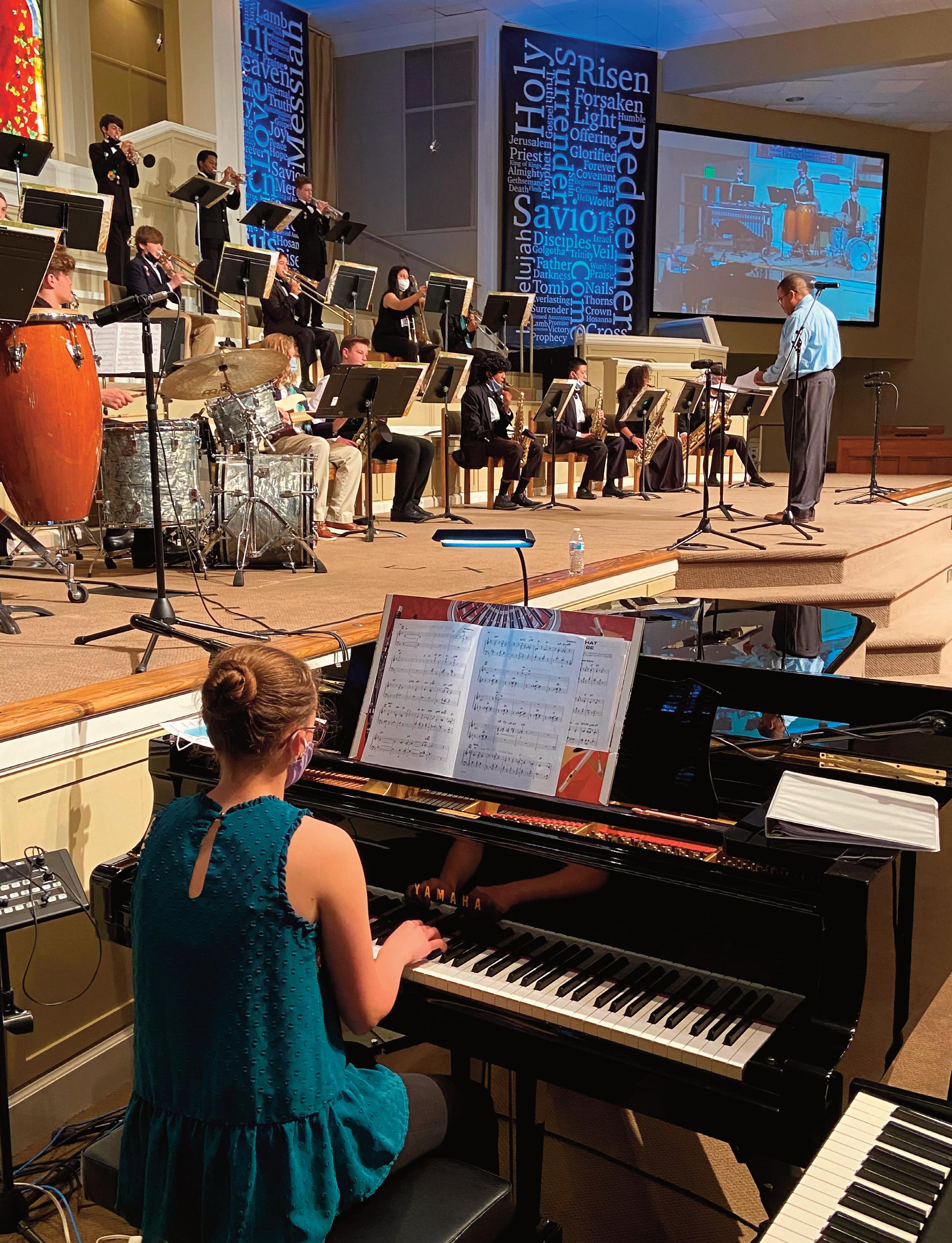
Official Publication
May/June 2021 www.myamea.org
The
of the Alabama Music Educators Association

DEPARTMENT OF MUSIC


MUSIC THAT WILL CHANGE YOUR WORLD


ala breve 5 6 AMEA Governing Board Directory 12 2022 Conference 13 Eleanor Nation FAME Scholarship 13 AMEA Young Composers Competition 16 Rescuing the Dying Duck by Dr. Kathleen Carter Bell 20 Time for Your Program’s Tune-up by Christopher Loftin 22 A Balancing Act... by DeShun J. Iverson 27 ABA All-State Photos 28 Phi Beta Mu “Tips that Click” 30 Teaching With Technology... by Francisco Gonzalez 32 Self-Reflection Progression by Dr. Matt Leder 34 The Art of the Ask by Dr. Rob Lyda 36 ABA All-State Jazz Band 37 General Music Reviews by Deanna Bell 38 AVA All-State Photos 40 Industry Membership ala breve the official publication of the Alabama Music Educators Association May/June 2021 Arts Music Shop, Inc back cover Belmont University 33 Huntingdon College Bands.......................41 John M. Long School of Music (Troy) .....40 UA Bands 2 UAB Music 3 UNA Department of Music ........................4 University of South Alabama Bands 22 University of South Alabama Music 39 UT Chattanooga ..................................18-19 Yamaha 11 7 ..................... President 8 ........................... Tri-M 9 ............................ HED 10 ........................... AOA 14 ................ ELEM/GEN 23 cNAfME 26 ABA 34 President-elect 35 .......... Past Presidents 36 ........................... Jazz Departments... Advertisers...
President David Raney
Sparkman High School 2616 Jeff Road Harvest, AL 35749 (256)837-0331 draney@madison.k12.al.us
Immediate Past President Greg Gumina

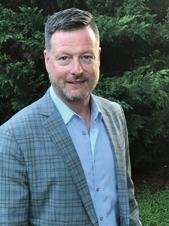
Shades Valley High School 6100 Old Leeds Road Irondale, AL 35210 (205)956-4638 ggumina85@gmail.com
President, AOA Dr. Daniel Stevens University of North Alabama One Harrison Plaza Florence, AL 35631 (256)765-4708 dstevens1@una.edu
President, AMEA Collegiate Emma Tosney (205)306-8365 ejtosney@crimson.ua.edu
Industry Representative
Becky Lightfoot Arts Music Shop 3030 East Blvd Montgomery, AL 36116 (334)271-2787
beckyl@artsmusicshop com
Executive Director
Editor, Ala Breve
Garry Taylor 1600 Manor Dr NE Cullman, AL 35055 (256)636-2754 executive_director@myamea.org
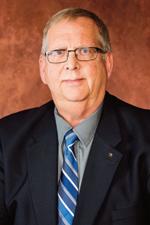
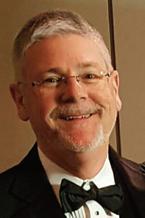

Garry Taylor, Editor & Advertising Manager 1600 Manor Dr NE Cullman, AL 35055 (256) 636-2754 executive_director@bellsouth net
President-Elect
Dr. Rob Lyda
Cary Woods Elementary School 715 Sanders Street Auburn, AL 36830 (334)663-0898 lydarob@me.com
Recording Secretary
Dr. Carla Gallahan 113 Long Hall Troy University Troy, AL 36082 (334)670-3502 recording_secretary@myamea.org


President, AVA
Randall Fields
Bob Jones High School 650 Hughes Road Madison, AL 35758 (256)772-2547 randall.fields.ava@gmail.com
AMEA Collegiate Advisor
Dr. Meghan Merciers University of North Alabama UNA Box 5040 142 Music Building Florence, AL 35632-0001 (256)765.4518 mmerciers@una.edu
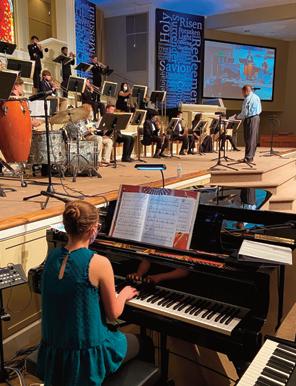
Assistant Executive Director


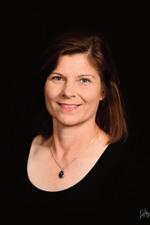
Dr. Russell Logan 2020 Janabrooke Lane Auburn, AL 36830 (334)663-1702
rlogan9853@gmail.com
Treasurer/Registrar
Pat Stegall AMEA Registration PO Box 3385 Muscle Shoals, AL 35661 treasurer_registrar@myamea.org
President, ABA
Terry Ownby
Florence High School 1201 Bradshaw Drive Florence, AL 35630 (256)768-2200
tsownby@florencek12.org
President, ELEM/GEN

Betty Wilson Deer Valley Elementary 4990 Ross Bridge Parkway Hoover, AL 35226 (205)296-3311 bettyboop122372@att.net
President, HED Division
Dr. Michael Zelenak

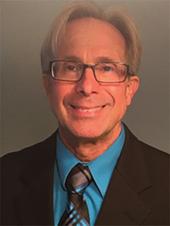
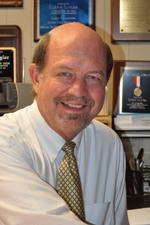


Alabama State University 915 S. Jackson St. Tullibody Music Hall Room 208 Montgomery, AL 36104 (334)604-9187
mzelenak@alasu.edu
Alabama Department of Education Arts Education Specialist
Andy Meadows 50 North Ripley Street Montgomery, Alabama 36104 (334)694-4768

ameadows@ALSDE.edu
Unless otherwise indicated, permission is granted to NAfME members to reprint articles for educational purposes. Opinions expressed in this publication are not necessarily those of AMEA or the Editor. All announcements & submissions are subject to editorial judgement/revision.The Alabama Music Educators Association is a state unit of NAfME: The National Association for Music Education, a voluntary, nonprofit organization representing all phases of music education in schools, colleges, universities, and teacher-education institutions. Active NAfME/AMEA membership is open to all persons engaged in music teaching or other music education work.
6 May/June 2021
Ala Breve is published four times a year (August, October, February & May) by the Alabama Music Educators Association and printed by Hardwick and Son Printing in Dothan, Alabama. Subscription for members is $4.00 per year as part of annual NAfME/AMEA dues. Subscriptions for non-members is $15.00 per year. Bulk rate postage paid at Dothan, Alabama.
Fall
School)
Winter
Spring
Summer
ala breve TheOfficialPublication theAlabamaMusicEducatorsAssociation May/June2021 www.myamea.org 2021_Layout 5/3/2021 5:23 Page
ADVERTISING & COPY DEADLINES
- August/September (Back to
issue: July 15
- October/November (Conference) issue: September 15
- May/June (All-State) issue: January 15
- May/June (Digital Only) issue: April 15
AMEA Governing Board 2020-2021
On the Cover: ABA All-State Middle School Jazz Band
David Raney, AMEA President
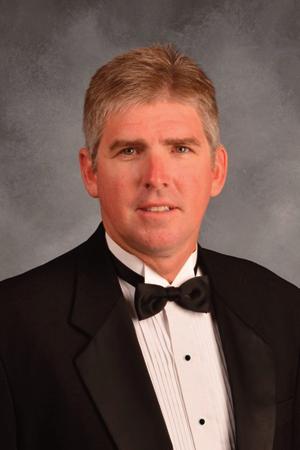
Congratulations, Alabama!
“Success is not final, failure is not fatal: it is the courage to continue that counts.” - Winston S. Churchill.
As I reflect on this past year with the decisions that were made by our music educators and leaders, I think of these words from Winston Churchill. Educators all across the state worked incredibly hard to continue enriching their students with the best quality music education possible.
Over the course of this year, I have witnessed educators share creative ideas and solve complex problems to a level I couldn’t have imaged two years ago. Congratulations on a job well done. Now that we are crossing this year’s finish line, I hope you take pride in knowing you had the courage to complete the journey.
I am so proud of our division leaders that had the fortitude to make the hard
decisions necessary for you and your students. Although their burden was great, they found a way to provide our students and educators with virtual Professional Development, Music Performance Assessments, Solo & Ensembles, in-person Honor Bands/Choirs and All-States Festivals in a safe environment.
I know of no other state in the country that has done so much towards providing so many opportunities for our students and educators than we have in Alabama. We can all take pride in knowing we worked together, never gave up and didn’t settle by taking the easy path.
Each year during the summer, a staff of AMEA leaders travel to Washington, D.C. to advocate for music education in what is known as “Hill Day” meetings. Last year’s events were cancelled and this year NAfME decided to organize virtual meetings during the month of March. I designated Dr. Rob Lyda as our State’s Captain to coordinate these meetings and I’m happy to report they were a great success.
During these “Hill Day” meetings, we were able to meet with the staff of Senators Tommy Tuberville and Richard Shelby along with Representatives Jerry Carl, Barry Moore, Mike Rogers, and Gary Palmer. We shared details of the issues music educators had to overcome this past year along with making suggestions towards our funding needs. Our main objective was to establish a relationship with these offices for their support. I
would like to thank Dr. Lyda for his leadership and well organized meetings that led us to what I feel was a mission accomplished.
Soon after our meetings, the office of Rep. Rogers contacted NAfME in an effort to discover further information concerning social and emotional learning as well as the funding of music education. This response was recognized by NAfME as a great success As this year comes to a close, we should celebrate our successes and learn from our struggles. Now is the time to look towards the future and begin the process of rebuilding with a new sense of appreciation and drive.
You can start now by planning your professional development for next year. During the All-State Band Festival this past April, I had the opportunity to attend my first in-person clinic in over a year! This experience left me with a renewed sense of appreciation for professional development.
The AMEA Leadership and staff are looking forward to organizing our next in-person Professional Development Conference in January of 2022. We plan to implement new ideas discovered over the past year into our next conference and make it the best experience possible.
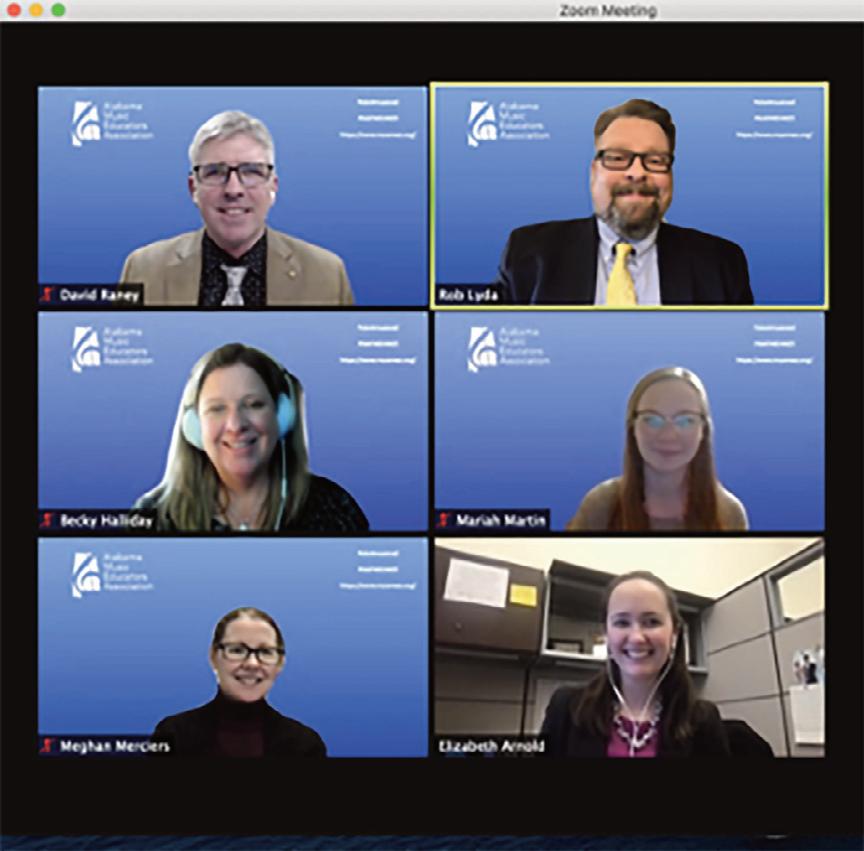

I hope your year finished stronger than it st-arted and you finally have an opportunity to rest and recharge. I am looking forward to next year for what I anticipate will be the most fulfilling year of our careers. I can not wait to see you all again soon.
David Raney
ala breve 7
AMEA’s delegation (President David Raney, President-elect Rob Lyda, Becky Halliday, cNAfME Vice-President Mariah Martin, and cNAfME Advisor Meghan Merciers) meet with Elizabeth Arnold from Representative Gary Palmer’s office
John Cooper- AMEA Tri-M Chair
Tri-M: Encouraging and Creating Student Music Leaders
Tri-M Music Honor Society is the only music honor society in the country. Its purpose is to recognize students who excel both academically and musically. By recognizing outstanding music students, the National Association for Music Education is focusing on creating future leaders in music education and music advocacy.
How can a Tri-M chapter help you? Your Tri-M chapter can highlight your program and increase the visibility of all of your music programs in your community. It can also motivate your students to grow as leaders and musicians.
Tri-M across the nation currently involves more than 84,000 students in 2100 chapters. Each year, those
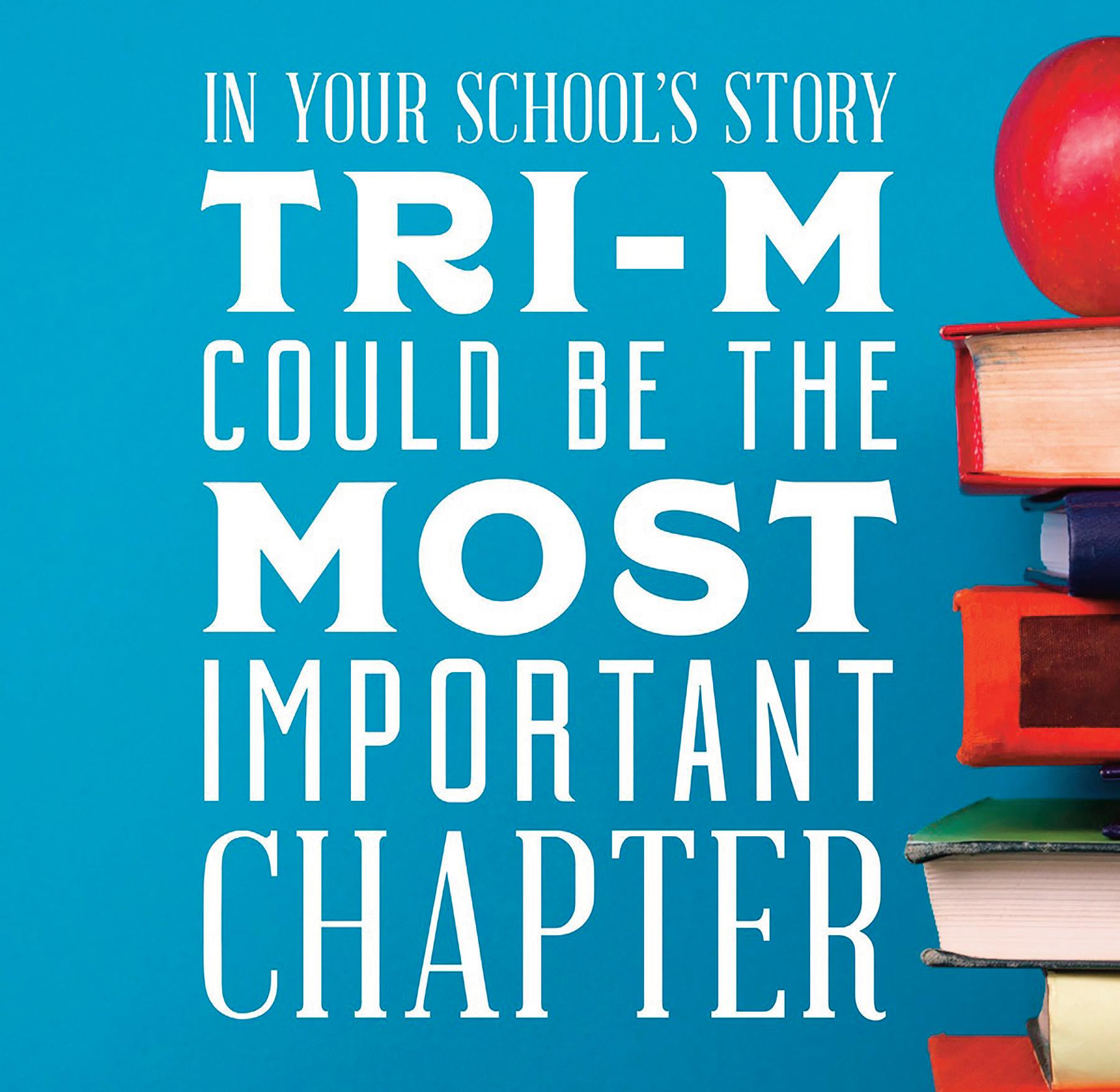
students contribute more than 750,000 hours of service to their school and community and raise nearly $1 million for causes.
Want to learn more? Check out more information at:
https://nafme.org/start-your-tri-mchapter-today/
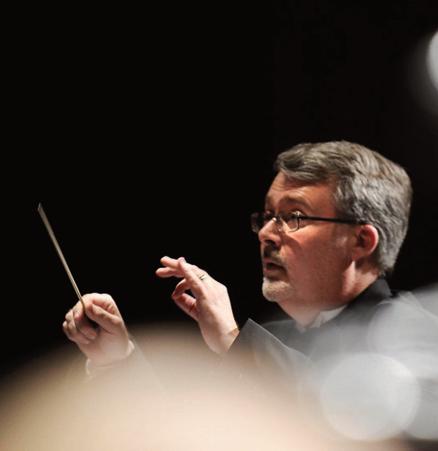

8 May/June 2021
Michael Zelenak - President, Higher Education Division
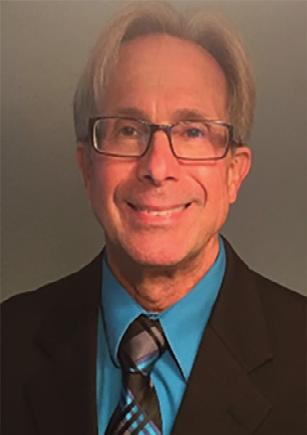
End of the COVID School Year
Wow! What a year it has been. Music education has certainly changed over the past 15 months. One common theme that arises when talking to colleagues seems to be the loss of time. Online teaching requires extra time to prepare, present, and assess. No wonder we are exhausted. Yes, change is hard, but we have endured. We have adjusted to the new normal and are ready to move forward. Some practices that have emerged during the pandemic are worth keeping, while others, should be discarded. Here are my thoughts.
face while simultaneously teaching another group of students online? I’ve seen valiant teachers struggle very successfully in blended learning environments. But despite their efforts, are the students really learning?
Online conferences: I have mixed feelings about this one. The AMEA 2021 Conference was a highlight for me. I watched great presentations, witnessed inspiring performances, and didn’t have to pay for a hotel room. All things considered, I would rather dig a little deeper into my wallet and spend a few precious days with my colleagues than sit in front of a computer screen.
Parking lot choir performances: If you do not know what I’m talking about, here is the link https://www.youtube.com/watch?v=Tl 4OoOxrgUg. This is human ingenuity at its best, but I doubt that this type of performance is what the composers intended.
Practices to Keep
Web conferencing: Everyone has become more skillful using Zoom, Google Meet, etc. This is an efficient method of communication. You can speak to large numbers of people without leaving your office and you can exit the meeting without being noticed.
Social Emotional
Learning: Music
important role in healing the emotional scars caused by the pandemic.
Web resources: The number and quality of resources on the web have exploded. New resources are being developed every day. I continue to be amazed at what I am able to find.

Students recording themselves: Selfevaluation is an important part of learning. School shutdowns have forced more students to record and evaluate their own performances. This is a good thing! How can we truly understand our abilities if we do not listen to ourselves?
Visions for the Next School Year
Practices to Discard
Blended learning: Can an educator be successful in teaching students face-to-
education does more than develop singers who can hit the high notes and instrumentalists who perform with amazing virtuosity. As Bennett Reimer professed, music connects people to their feelings. Campaigns are growing to use the tenets of SEL as a means to assist students with their psychological needs. Music education can play an
As we return to the classroom, I’d like to share three goals for the upcoming school year. First, the HED will play a greater role in promoting professional development opportunities across the state. Our members and their institutions host many of these events. We can help them attract participants. Second, the HED will facilitate reciprocal relationships between institutions of higher education and Pk12 schools. We need each other, so let’s communicate! Third, COVID has taken much of the enjoyment out of the classroom. The HED will continue working on ideas to put the excitement back into teaching. One idea has been to partner with our C-NAfME chapter and develop a “Festival of Music Lesson Presentations.” That may be the spark that ignites the joy we are missing. If you have a suggestion, please share it.
In closing, find time to disconnect this summer and breathe. Next year may be the best school year ever!
ala breve 9
Dr.
Yes, change is hard, but we have endured. We have adjusted to the new normal and are ready to move forward.
Capacity to Recover
When the life we once knew begins to settle back to us on the other side of the pandemic, it is obvious that we will never again take live music for granted. The passion that was instilled in us at a young age, mentored by great educators, transformed each of us into model performers, teachers, and clinicians. Dark performance stages and personal isolation will slowly fade as we are driven toward safely vaccinated events: the arena-filled rock concert, the local school ensemble performance, the professional orchestra, or the captivating film score screened at a local movie theatre.
I am impressed by the resilience of our state orchestra programs, and their never-ending commitment to their musicians. Professional orchestras have slowly migrated from virtual events to socially distant
openings, featuring restructured repertoire that features a subsection of the entire ensemble. Seven Alabama youth orchestras never adopted an attitude of defeat, setting up virtual instruction, score study, and masterclasses to keep talented students engaged. Public school orchestra programs are slowly reintroducing instruments into classrooms. And the Alabama Orchestra Association remains committed to our talented orchestra students, as a challenging year forced us to be decisive in adapting to virtual All-State Auditions and the virtual Orchestra Music Performance Assessment. Socially-distant, vaccinated crowds can now return to the concert hall to be swept away from their daily struggles to be uplifted and fulfilled.
Please help me thank the countless orchestra educators, administrators,
professors, grant writers, music librarians, stage managers, music directors, and philanthropists that ensure that orchestral music will brighten our lives again very soon.
New Orchestra Music Performance Assessment Video Deadline……May 15, 2021
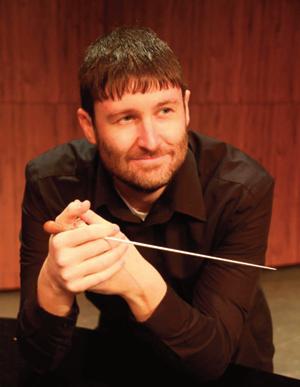


Details can be found at alabamaorchestraassociation.org
Thank you for your tireless and relentless work on behalf of our students. I am inspired by your commitment to engaging communities with the value of music.
Please know that my door is always open. Please feel free to contact me at dstevens1@una.edu.
Blessings,
Daniel Stevens
10 May/June 2021
Dr. Daniel Stevens- President, Alabama Orchestra Association
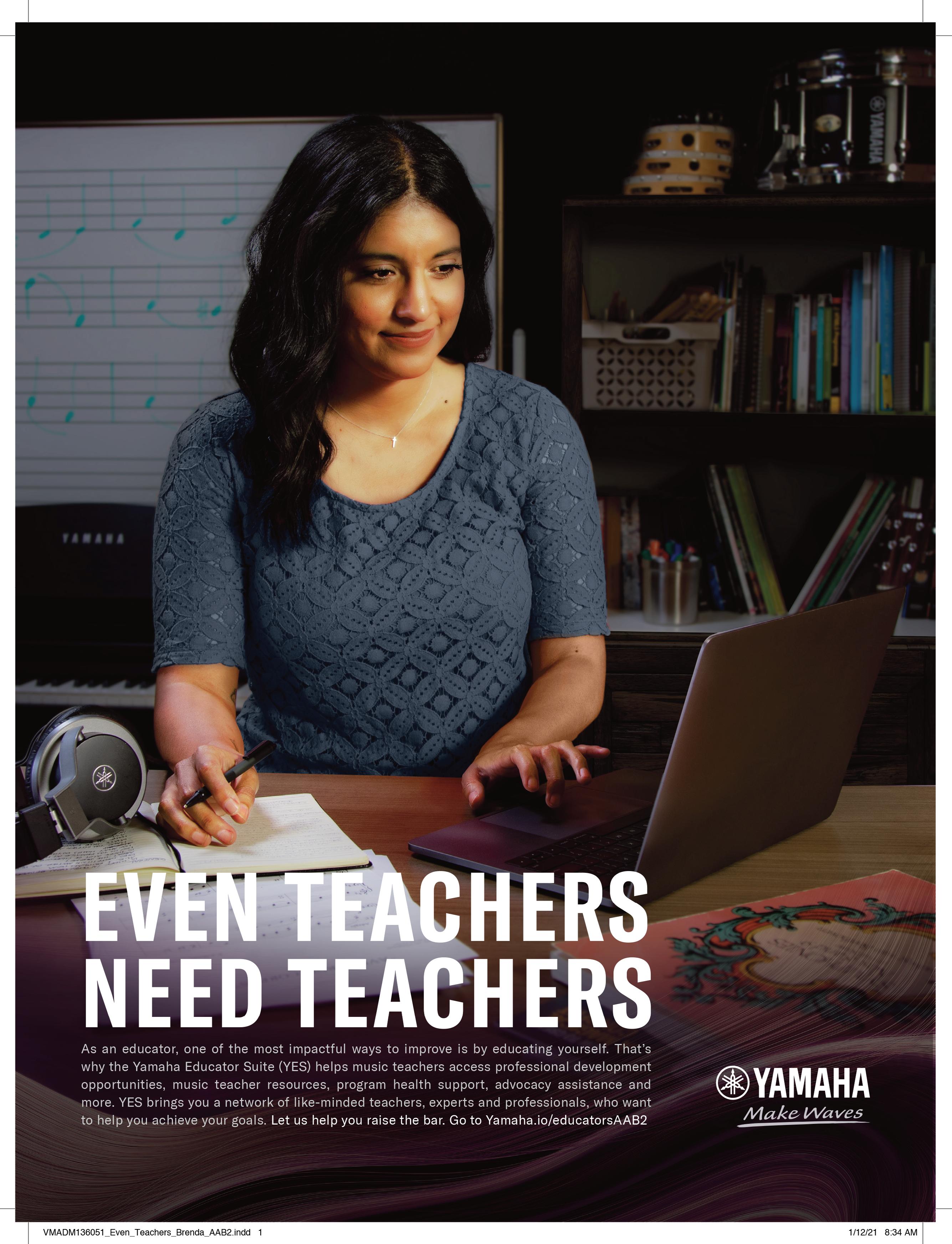

12 May/June 2021 Take your band, choir, orchestra, or general music ensemble to the "next level!" Apply to have them perform at #AMEA2022! Deadline June 1. https://www.myamea.org/conference-apply/ Apply today to present at #AMEA2022! Deadline is June 1. https://www.myamea.org/conference-apply/ Submit a Lobby Group Performance Application for #AMEA2022! Deadline November 15. https://www.myamea.org/conference-apply/ Present a Lightning Round Session at #AMEA2022! Deadline is October 1. https://www.myamea.org/conference-apply/
FAME SCHOLARSHIP
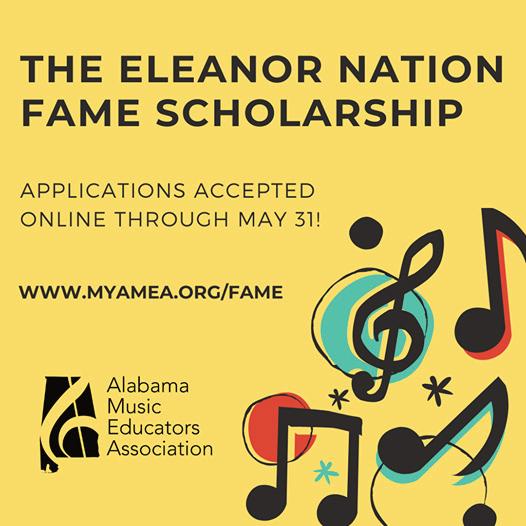
APPLICATIONS ACCEPTED

ONLINE THROUGH MAY 31!
WWW.MYAMEA.ORG/FAME
ala breve 13
THE ELEANOR NATION
I Wish You More
I was in the bookstore last week and I found a delightful children’s book entitled, I Wish You More by Amy Krouse Rosenthal and Tom Lichtenheld (Chronicle Books, 2015). After reading a few of the pages, I bought the book as a gift for my student intern. It also made me think of you. Here are a few lines:
“I wish you more ups than downs, I wish you more give than take, I wish you more tippy-toes than deep (illustration of a pool) I wish you more we than me
I wish you more hugs than ughs.. (skipping ahead…)
I wish you more treasures than pockets
I wish you more stories than stars,
I wish all of this for you, because you are everything I could wish for….. and more.”
Elementary AMEA, you are everything I could wish for and more. When the pandemic hit, you stepped up to the plate with lessons and materials to share with others. You participated in numerous Zoom and Google meets to plan how to teach and what to teach for the upcoming school year. Your colleagues reached out for help and you were there. Maybe you reached out too and found help through our organization or a colleague. You attended the 1st ever, virtual AMEA conference, making it one of the most successful conferences ever. You fill in the gap every day even though it has been hard and sometimes seemed impossible. You are amazing and I wish you more!
As we move forward into 2021, I am excited for music education in Alabama. As you know, my two-year term as Elementary Division President is coming to an end. It has been a pleasure serving you. You have elected a wonderful slate of officers who stand poised and ready to take the helm in June. Your newly elected Elementary Board is as follows:
President: Sarah McLendon
President Elect: Alicia Luttrell
Secretary: Melissa Galanopolous
Treasurer: Devin Lacy
Past President: Betty Wilson
Festival Director: Melissa McIntyre
Hospitality: Erica Lutz

Please reach out to any of these educators or your district chairs if you have any questions about our upcoming workshops and conferences. We look forward to hearing from you about conference sessions, possible inservices, and/or clinicians you would like to have.
Remember, we have many excellent music education opportunities at our disposal this summer including Orff levels I and III at Samford University and Kodaly levels I, II, and III at the University of Montevallo. Also, registration for the Elementary Music Festival is open until May 7th. The festival will be held on October 15th at Eastmont Baptist Church in Montgomery. Details are below. Lastly, we have started planning our annual AMEA Professional Development Conference. This year our 2022 conference will be in Birmingham, on January 20-22, 2022. Please consider applying for your choral or instrumental group to perform at the conference or to be a presenter. Some of our best interest sessions have come from our fellow Alabama music teachers. Please consider sharing your wonderful ideas with us. Both conference applications can be found on the myamea.org webpage https://myamea.org/conference-apply/. The deadline to apply is June 1st. These are just a few of the amazing opportunities we have for professional and personal development and I hope you will take advantage of as many as you can.
In closing, I know it has been a challenging year. I thank you for hanging in there and for doing your best during this unprecedented time. One day we will tell our grandkids the most amazing tales of when everything closed for months, including schools, there was no toilet paper to be found, and how we had to teach music over the computers. In fact, we may go down as the first generation of digital music educators. The next generation may laugh and tell us we are spinning a yarn. Won’t that be wonderful? I wish you all the best! I wish you more. More drums than desks, more smiles than masks, more hugs than waves. I wish you more sunshine than rain and more joy than sadness. “I wish all of this for you, because you are everything I could wish for….and more.”
For questions or updates, please contact us at elementaryamea@gmail.com
Have a Great Summer, Betty R.
Wilson, President Elementary/General Division
Workshops and Other Professional Development Opportunities
Alabama AOSA
Orff Levels I, and III Summer of 2021, June 21-July 2, 2021
Samford University: contact Dr. Soja msoja@samford.edu
 Betty Wilson - President, Elementary/General Division
Betty Wilson - President, Elementary/General Division
14 May/June 2021
Orff-Schulwerk Level One Workshop: https://eve.samford.edu/index.php?formid=3423&h
e=no
Orff-Schulwerk Level Three Workshop: https://eve.samford.edu/index.php?formid=3424&h
e=no
AOSA Spring Workshop
March 5, 2022, Jennifer Donovan, Clinician
Sweet Home Alabama Kodaly Educators
(S.H.A.K.E.)Workshop
https://sites.google.com/view/alabamakodaly/home
Kodaly Levels I, II, III, July 12-23, 2021
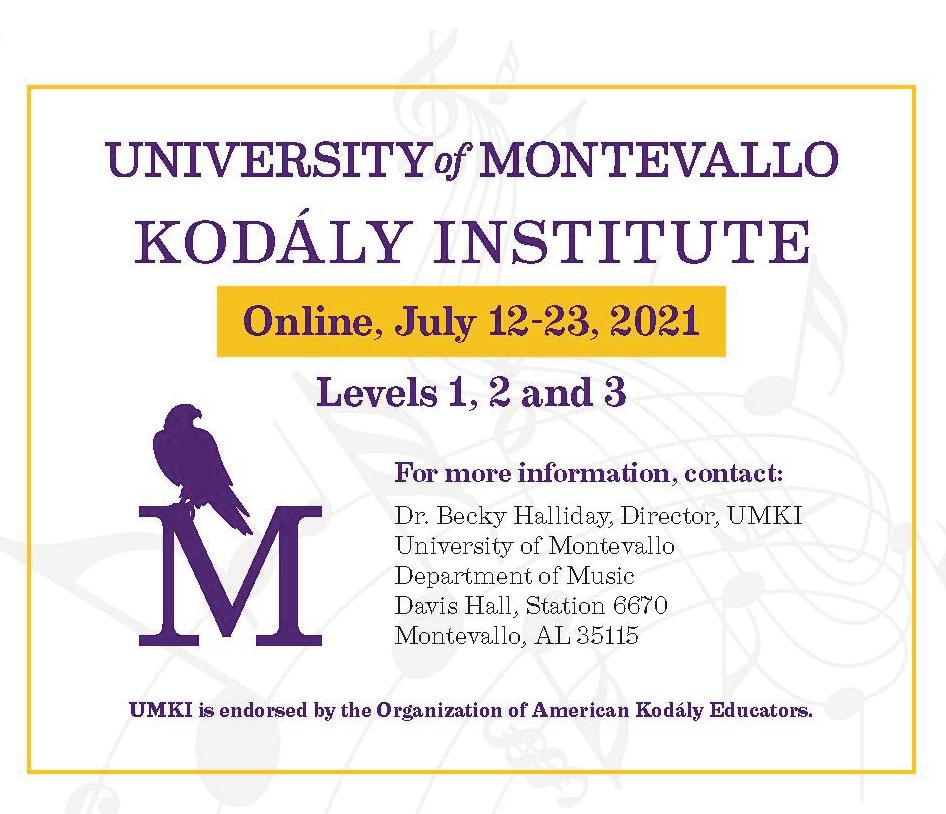
University of Montevallo: Contact Becky Halliday ahalliday@montevallo.edu
S.H.A.K.E. Workshops
Fall (August/Sept) 2021: Lea Hoppe, Clinician
April 2022: Rachel Gibson, Clinician
East Alabama Music Educators
August 28th, 2021, Auburn, Alabama
Contact Dr. Rob Lyda for details lydarob@me.com
AMEA Music Festival
October 15, Eastmont Baptist Church
Clinicians: Rhonda Tucker and Jeremy Howard
For details email: ameafestival@gmail.com
The sign-up deadline is Friday, May 7, 2021, and all sign-ups must be completed online using this link: https://forms.gle/bb5syP2Y9Ci8UQfTA
AMEA Fall Workshop
October 16, Eastmont Baptist Church, TBA
AMEA Professional Development Conference
January 20-22, 2022, Birmingham, Al
ala breve 15
Rescuing the “Dying Duck”: Tools
for Developing a Beautiful Oboe Tone
by Dr. Kathleen Carter Bell
Early this spring, I taught a masterclass as part of Auburn University’s Virtual Honor Band. I decided to spend the time I had with the oboe students focusing on “tone,” as it is one of the fundamentals most asked about (and frequently agonized over) by young musicians. I started the class by asking “What do you think of when someone mentions the oboe’s tone?” One young player immediately called out, “A dying duck.” All the students laughed, groaned, or nodded along. We’ve all heard the comparison before.
Before I even started studying the oboe, I had already heard students joke about the sound of beginning oboe players. As I prepared in 5th grade for my first-ever recital, in which I was to play a solo piece, I felt extremely self-conscious—so much so that I told my mom I didn’t want to perform. I was terrified of inviting comparisons between my sound and that of the flute players, who I thought sounded more than half-way decent and got to play as a large group. As the only oboe player, I already stuck out. Although I made it through that first oboe performance experience unscathed, this fear of embarrassment based on early tone production can be discouraging and downright hurtful to young players. While the challenges of developing a pleasing oboe tone will always exist, there are things we as educators can do to help students work toward a sound that will give them confidence in their playing and ultimately make the “dying duck” comparisons obsolete.
Why Does Tone Matter?
I’m sure we’ve all had the experience of watching a tv show or movie and noticing that a poignant oboe solo enters at a
particularly tender or heart-wrenching moment in the drama. Beauty of sound is the oboe’s identity. On the whole, oboists can’t play the softest, loudest, or fastest, but we can captivate audiences with pure expression. Tone issues can stand in the way of oboists achieving this prized quality. Struggles with tone also impact a player’s confidence and ability to blend in ensemble playing. Students will often compromise good playing technique in attempts to make the reed sound better. This commonly results in players biting the reed to tame its wild vibrations, leading to pitch and phrasing issues. Ultimately, and of most concern, protracted tone struggles can diminish an oboist’s enjoyment of playing.
Oboe Tone Facts
To begin solving some of these challenges, both educators and players must first understand that good oboe tone comes with time. For beginners, the intricacies of learning a new way to contort their facial muscles (aka embouchure) in conjunction with learning how to tame two pieces of cane lashed together is tricky to say the least. An inspiring tone must develop alongside other elements of playing, including good breath support, focus of the sound, pitch control and vibrato. Therefore, tone is quite connected to other aspects of playing; if any of these aspects are off-base, it is very hard to produce a beautiful tone.
Solutions
I have included below a list of things educators and young players can try in an effort to improve oboe tone. While any one of these tips may help, please keep in mind that it’s likely a combination of strategies that will ultimately lead to good results!
First and most importantly, students need to develop a clear idea of what constitutes a desirable tone. One of my teachers frequently said, “always play to your musical ideal,” but if students don’t have great examples to emulate, particularly early on, how will they know when they’re making progress toward that ideal? The American style of oboe playing relishes a dark, rich sound which can create a variety of colors and characters. Students should be encouraged to listen to professional oboists whose sound inspires them, describing what they hear in their own words to make their sound definition more personal. Some oboists I suggest they start with include Elaine Douvas, Linda Strommen, Eugene Izotov, Frank Rosenwein, and John Ferrillo, whose recordings can be easily found on Spotify or YouTube. Additionally, guiding young players to music with incredible oboe solos that they will recognize is motivating as well. One of my favorite pop culture oboe examples is Across the Stars, featured in Star Wars: Attack of the Clones. Another John Williams work with a beautiful oboe solo is his Theme from Angela’s Ashes. Getting great
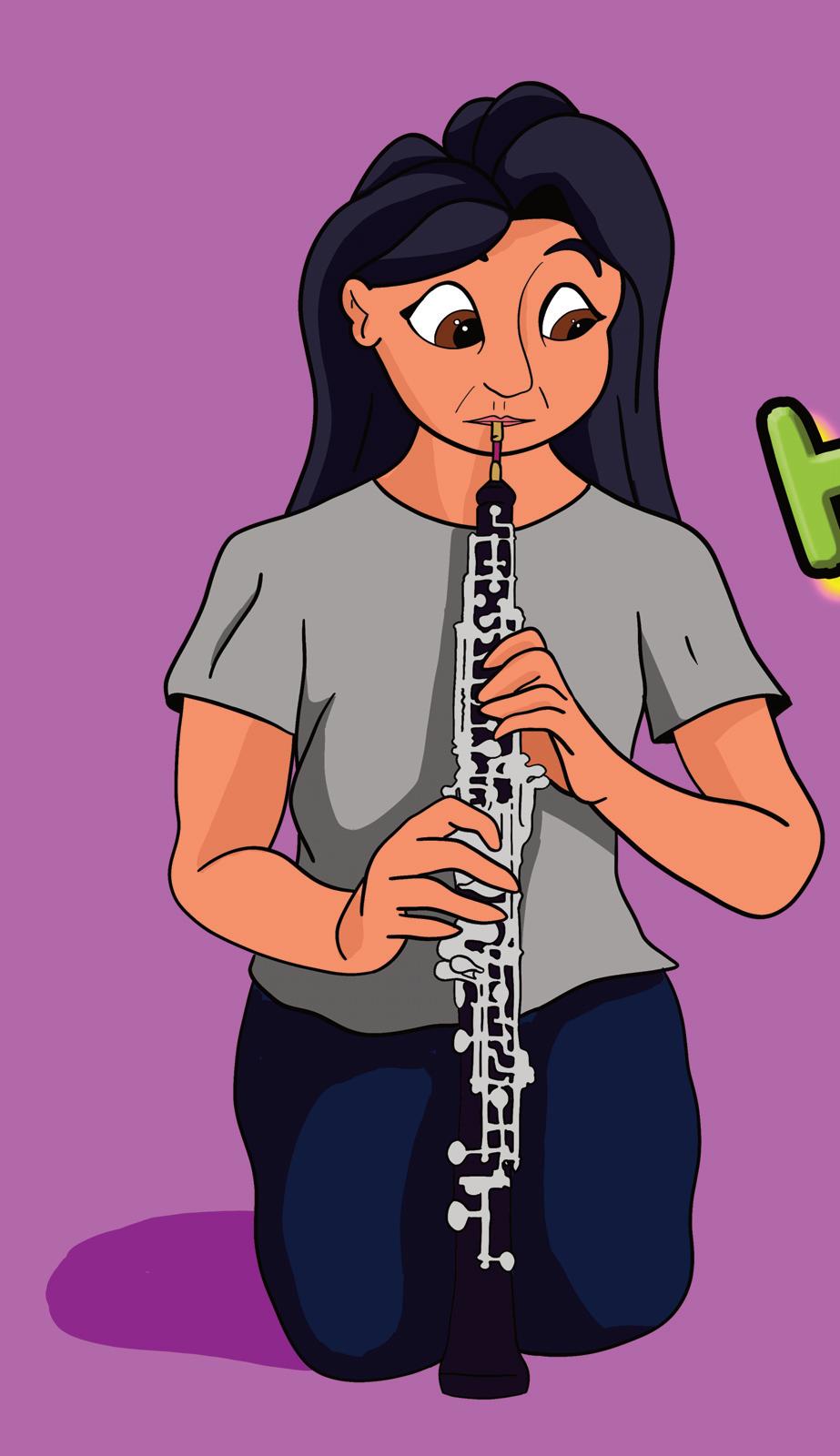
16 May/June 2021
examples of tone in young ears will make those great sounds easier to emulate.
By far the easiest way to improve tone is to get students playing on better reeds. Many oboists start on Jones or other machinemanufactured reeds. While these are fine at the earliest stages, they soon start to hold students back. Such reeds tend to be flat and often aren’t as easy-blowing as one would expect. Hand-made reeds from a professional oboist will be life-changing. Ideally, students will purchase reeds from their private teacher, since the teacher can adjust the reeds to suit the player’s oboe and playing style. There are, however, many great reed vendors online. To test your student’s reed, have them blow it in playing position. The reed should “crow” a C and certainly shouldn’t be flat. If the sound is too “scattered,” it is also unlikely to produce a good tone.
Also very important to an oboist’s sound is embouchure. A round embouchure and internal mouth shape help mirror the round oboe tone students are trying to achieve. Students who hold their mouths very closed
or pinch the reed closed are more likely to have a pinched and bound-up sound. In order to get the ideal embouchure, students should make a “whistle shape” with their lips (actual ability to whistle not required), and then cinch the lips closed around the reed in a firm but not pinched manner. This also helps the chin stay flat while playing, which helps avoid extra pressure and manipulation of the reed.
Next to the reed, the main culprits for uninspiring oboe sounds are a lack of support and/or focused air. In order to produce sound, young players are frequently told to “blow more air.” In actuality, however, this is often counterproductive to a good oboe tone. We do need fast air, but oboe reeds are very tiny and easily overloaded. Too much air can lead to sharp playing and an aggressive, harsh, or small tone. We can actually play the oboe on almost no air, as long as that air is supported and focused. When I play, I have three physical places that I engage with most: my abdominal muscles (which support my playing), my embouchure (which engages with the reed) and the muscles in my throat (which I use to focus the air). The throat muscles, when engaged correctly, act like a funnel to channel air into the tiny opening of the reed. I often call this action, “keeping the air back from the reed,” as it serves to keep the wall of air from being too direct. To explain this to students, I often describe how a dam works to produce energy. In order to have a functioning dam, we need a reservoir filled with water (or in our case, a reserve of air in our lungs). The dam itself (our abdominal support combined with throat muscles) restricts the flow of water coming through the dam (or, when we play, restricts air from arriving unrestrained and overloaded into our mouth and the reed). This channeling of the water (air) results in more power on the other side: either a powerful gush of water which creates energy, or an energized stream of air which helps us play our best.
There are a few different avenues to help students get this feeling of focus in the throat. First, try having students put their hands on their throats and fake coughing. They should be able to feel the place that vibrates, which is where we intentionally focus the air. Next, try having students imagine they are a bullfrog—puffing their throat up to give a loud “croak”! The feeling they get in the throat is an exaggerated version of what they need when playing.

Third, have students say the syllable “ooo” in rhythms (such as quarters, eighths, or triplets). You do not need to engage the lips or tongue to make this sound and students can feel how reliant we are on the throat to make that sound happen. Finally, students can imagine that they are jumping into a swimming pool in the summer. Their mission? To hold their breath without closing their mouth or holding their nose! How do we do that? By using muscles in our throat to restrict the air! If students are able to focus the air, the tone will become more manageable and deeper as they learn to better control their use of the wind.
Final Thoughts
After we all laughed about the “dying duck” stereotype in that oboe masterclass last spring, the students dug a little deeper into their tone goals. They all arrived at words such as “captivating,” “enchanting,” “deep,” “bold,” “warm,” and “passionate” to describe their ideal sound. Because “captivating” and “deep” oboe sounds can take time (often years) to develop, it is essential to point students in the right direction from their earliest lessons. Time spent learning to enhance tone will enable players to captivate audiences, attain greater enjoyment in performing, and—ultimately— rescue that “dying duck.”
Dr. Kathleen Carter Bell, Auburn University’s Lecturer in Oboe, is a passionate performer of solo, chamber, and orchestral repertoire. In 2019, Kathleen was chosen to represent Indiana University at Seoul National University’s Chamber Music Festival and she will perform with the Elicio Winds this fall at the CMS National Conference. Dr. Bell has given masterclasses and presentations across the country and serves as oboe instructor for the IU Summer Music Clinic, in addition to maintaining a private studio. Kathleen earned her Doctor of Music degree from IU and was one of six graduate recipients of the 2012 Barbara and David H. Jacobs Fellowship, granted for “excellence and leadership in the world of music.”

ala breve 17
artwork by Jake Niehl
Rand o . C dall O leman
W O C NO UT
GIONAL T RE FFERING


COUNT TUITION DIS

For the past has served a Symphonic B of the Million ofAlabamaH
of Alabama. H and artistic di an all-adult co in Birmingham Coleman enjoy as a high schoo metropolitan A



14 years, Professor C s the conductor of the Band and the associate n Dollar Band at the Un Hehasalsoservveedas
oleman Alabama director iversity conductor
He has also served as irector of the Alabama Winds, mmunity wind band based , Mr viously , Alabama. Pre y, r. . ear car y ed a successful 25-ye reer ol band dirrector and supervisor in Attlanta, Georgia.

As

nd moves closer to our in 2023, it is indeed an o be a part of the new he UTC bands. I stand on the e UTC band directors who



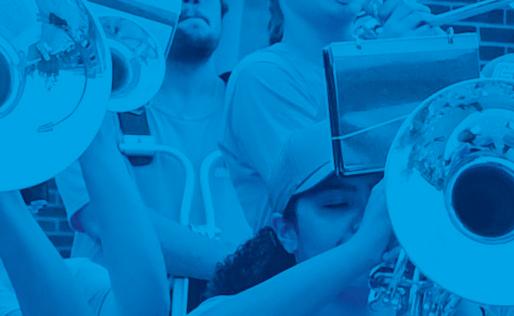


dIld’tb
came before me, and I couldn’t b inspired to be a part of such a ric and legacy as we all work toward the UTC students with positive lea experiences through the pursuit o in all that we do. Go Mocs!

be more ch history d providing arning of excellence

C IS UT THRILL O LED T
“
AMERICANBAN CTED MEM CTEDMEM ATTION ASSS AS ATTIONAL THE NA E T--E T •PRESIDENT SOCIA PRESIDENT • ELE NDMAASSTERS L BAND CT OF ELECTOF MBEROFTHE MBER OF THE
the UTC ba 100th season exciting time t centennial for t shoulders of th bf
c.edubands@ut S AS T EDUCAT A ORSA ORG OF THE GE ATTION ASSS ASSOCIA AN BAN • FORMERPRES ORS A FORMER PRES AMERIC u SOCIAATTION IA MUSIC SIDENT -
PROFESSOR RANDALL COLEMAN
” 2 (423) 425-480
WELCOOME
as Dir a or of B t nds!
T BOR T AT O S T T TESTHA
RDER TENNESSEE
UT 2021-2022 A UTC MOCS BAND DAY Y 2



















We invite all current guestfooradaywith
SCHEDU C Bands

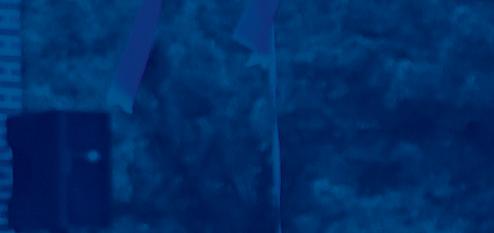
021 | OCTOBER 2, 2021
high school marching ban htheUTCMarchingMocs!C
d students to be our VIP Comeandbeapartofthe
or a day with the UTC Marching Mocs! C y f exciting game da e estivities as you join us in th Mocs and participate in both Pregame and Hal Finley Stadium with the Marching Mocs! This w miss. The day’s activities will include a morning and plenty of UTC Marching Mocs swag to take y T UTC Band Da T--Shirt! Please check the UTC B information on this fun event!

Come and be a part of the he stands to cheer on the UTC ftime activities on the field at ill be a day you don’t want to rehearsal, lunch (provided) home, including your own ebpage f ands w or updated




TRI-STTAATE HONOR BAND 2022 | JANUARY 20-23, 2022
gp w f Band for 2022. Mark your calendars no o or Ja the most musically rewarding and fun weekend ed f Students will be select o or participation for T a recommendation processes completed by th Selected students will participate in honor ban recognized conductors and clinicians, will atten our own UTC ensembles, and the weekend will presented by the Honor Band. All rehearsals an esponsible f UTC campus with each student r o or e f eye on our websit o or more details about Tri-S
All high school band members are invited to pa
articipate in the Tri-State Honor
anuary 20-23, 2022 for one of s you will ever experience. ri-State Honor Band through eir high school band director. d rehearsals with nationally nd f feeatured concerts by conclude with a concert d concerts will be held on the r housing and meals. Keep an tate Honor Band 2022.
TIV TRI-STTAATE FES VAAL OF
F WINDS 2022 | APRIL 21-23, 2022


The new Tri-State F designed to showca wind bands from th er T ev Trri-State Festiv
tional f estival of Winds is a non-competitive, educa e est ase the “best of the best” high school and middle scho es of T he stat Teennessee, Georgia and Alabama. The firsty val of Winds will be held on Thursday, , April 21-Saturday

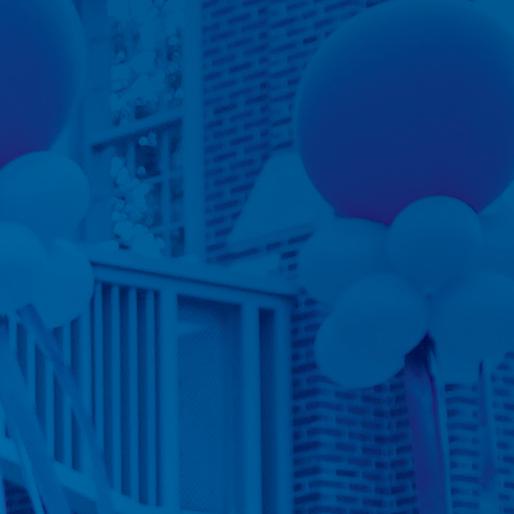
April 23, 2022 in the Center on the camp 2022, concert band ent perf most rec orm
e newly renovated Hayes Concert Hall in the Fine Arts ersity of T pus of the Univ Teennessee at Chattanooga. For s earning an overall “superior” rating at their state’s tion/ ance evalua /aassessment will receive an invitation iSttFtilfWidMkltbtfth

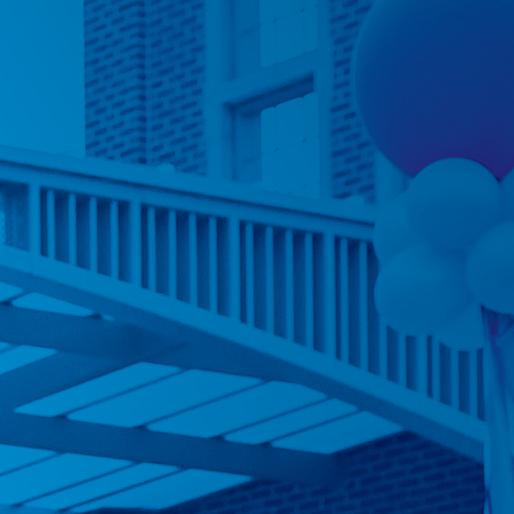

participate in the Tr wf exciting ne feestiva i-State Festival of Winds. Make plans to be a part of th es the T al that promot Trri-State region’s finest concert ba
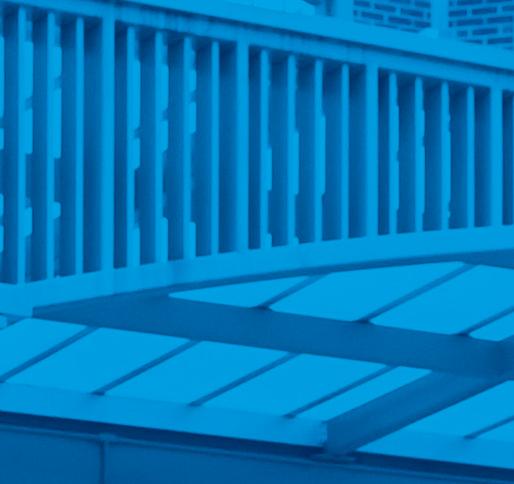
TIOONDAYYS: A ec
Ma Februa AUUDITIO • • A 22 , 20 ch 19 22 , 20 ary 19 ON D ar
S LE OF EVENT
INCL GREE includin ith m Wi Music DE Bachelo LUDE ing: minors f Arts: OPTIONS r o
MiE Bachelo ormPerf Bachelo Bus • Psy • Man Non •
ti Ed f Music: r o emanc f Music: r o sines chology agement nprofit g
tioCertifica o eading t L • Music T Bachelo Compo Bachelo Music
n dBoar yapher
Music: r o osition
Music: r o ducation
f
f
tiitithT
Music tioAssocia tioAssocia the Americ am m ogrPr • h ford c.eduut in Music T V ival ol y, , to hi n of Schools of tional n and the Na apyher an Music T ds of tandar meets s -BC) herap etails u/music y (MT isit
or d titution.inst A tem.UTSys CisanEEO/ c ehensiveUTCisacompr
. ADEA A A A Section504 itles VI & IX/ A/T /ADA/ -engaged campus of the UT ommunity
his ands.
Time for Your Program’s Tune-Up

Much like cars need tune-ups to help them run smoother, our programs occasionally need a tune-up. By taking care of some maintenance, we can prevent some of the issues that come with unforeseen incidents for a long time. Increased demands from administrators, parents, and students put a strain on directors physically and mentally. Teaching both virtually and in-person, as well as not being able to rehearse the way we would like, creates even more stress on directors and students. Getting students to complete assignments or attend rehearsals has become even more challenging during a pandemic. Student buy-in may have suffered as well. Unfortunately, we have so little control
by Christopher Loftin
over what happens to our program, but we do have the power to react positively. In this article, I will take you through a process that I have undertaken multiple times in my career where I look at every aspect of my program, have others look at every aspect of my program, and make adjustments, to increase student engagement, process efficiency, and director sanity. During this time of uncertainty toward the hopeful end of a pandemic and a return to a new normal, this is the time for a “Program Tune-Up.” Almost a decade ago, I took over as an assistant director in a wellestablished program. The director had been teaching at the school for over a decade and was an alum of the school.
Since leadership systems have always been an area of my research, the director and administration asked me to give a program tune-up to this established program. As an outsider, I was able to sit and observe the culture, talk with the administration and students, and get a 360-degree view of the program. There were several takeaways from this semester program: 1) The ensembles were all incredible musicians and read music extremely well; 2) The ensembles enjoyed the program; 3) The ensembles respected the director. However, there were some growth opportunities: 1) The students were not sure of their role in the chorus; 2) The director did about 95% of all of the work; 3) The director worked almost 100 hours per week; 4) Assessments did not measure intended outcomes; and 5) The director started to look for an administration job because he was not sure if he could teach the program anything else.
Before I get into my process for a program evaluation, the first question I usually receive is, “Why should I do a full program evaluation, and when should I start the process?”. No two music programs are alike. Each program is unique to its school, its community, its administrators, the director and students’ leadership style, and the students. There are always more efficient and effective processes. However, there are always unexpected stressors that arise. By finding more efficient ways to do your job successfully, you will be more prepared when the unknown occurs. To the second question posed earlier in this paragraph, what has worked for me is a large-scale evaluation of my entire program over one Summer, revamp and re-evaluate every year, then repeat every five years or when the director gets burned out. During the large-scale evaluation cycle, I leave no unturned stones, unless my administration overrules me. It is vital to consult other directors, your administrators, and your stakeholders. If we do not have the support, the program suffers.
The first step is looking at the program’s mission. Who are we? What do we stand for? Here is an exercise. Ask your student leaders to describe you in
20 May/June 2021
one word. Take the top three or four responses. These attributes are part of your mission because you are a direct reflection of the program. For example, if they say that you are commanding, passionate, and musical, that means your program is too. What a great thing to have said about yourself and the program! If you are unhappy with the results, here is a growth opportunity. The next question in this portion of the process is “Why is my program the way it is, and what influences the culture of my program?”. Think about the demographics, community norms, and school culture. Think about the repertoire selections and traditions you have. These items are part of who the program is. Next, get the leaders to help you write your program mission statement. Make it meaningful and something that can be taught and celebrated.
After you create your mission statement, think about your vision or where you want your program to go. What types of members do you want to attract? What is the program focus (show, contest, community performances, lots of music literacy, pop concert, etc.)? It is very challenging to do all of these well. Think about a restaurant that has 100 items on the menu. The kitchen has to buy too much food, and the quality usually suffers. However, if you do 20 menu items well, the customers know what type of food you cook, and the quality is better. This analogy is very similar to our music programs. We cannot be everything to everyone. The goal is to clarify your mission and vision and simplify your life. Once again, it is vital to get your student leader’s input. Unilateral decision-making leads to extra unilateral work.
The problem with mission and vision statements is that they can be wordy, without significance to students. One suggestion is to create three to four words that summarize what the program is and where it is going. Here is an example that worked in a previous program:
GTAC: Growth, Technique, Aptitude, and Community Growth-No matter where you are, always strive to be better.
Technique-We must be able to produce a quality, free tone that is in tune. Aptitude-Musical literacy is a key to building a life-long, independent musician.
Community-We are ultimately a team sport.
GTAC became a mantra for our program. Every quarter, we spent one week focusing on each of these four tenets. We practiced these and made GTAC a celebration of who we are. This mantra also became a review of expectations, goals, and procedures. Having this mantra clarified who were and where we wanted to go.
The next step in the program evaluation or tune-up process is probably the most challenging but the most rewarding task. If the item, the event, or the tradition fits into your mission, vision, and mantra, promote it. However, if it does not support those ideals, it is time to change. For example, if you have a program picnic in a park for three hours to focus on community building, how many of your students will show up all at the same time? If five people show up for the first hour, two people for the second hour, and fifteen people for the third hour, how many people were making new friends and building relationships? If the program spent money for food, supplies, or pavilion rental, was this a wise investment? Could the entire program community-building time be achieved more effectively and more efficiently?
Think about the traditions that you have in your program. Do they support your mission, vision, and mantra? Also, as part of the community building or growth aspect, could you delegate some tasks to students so you do not have to do them all? Could peer tutoring accomplish growth, aptitude, and community. I pose all of these questions because I want to give you a model of questions to pose about your program.
In this article, I have discussed a method of program evaluation that has worked for me. I have also consulted for other programs that are trying to simplify the programs to be more effective and more efficient. I first looked at the background scenarios prompting a program tune-up, worked through the
mission, vision, and mantra, and then discussed how to analyze if your program meets these ideals. Why is this process so important? Music educators have some of the biggest hearts. We are natural people pleasers, counselors, and mentors. However, we sometimes forget to take care of ourselves.
The goal of this article is to hopefully gain a better work and life balance for the director and increased student engagement and buy-in. Many students want to lead, especially when they believe in the program and its values. There are many tasks that we cannot train our musicians to do such as finances, 504s, and IEPs. However, students are trainable. When we give our leaders specific, written, and codified roles, they will step up to meet the expectations. Some of the limits on ourselves, our students, and our programs are the ones we place. After completing a year of COVID teaching, music teachers have shown their resiliency and grit. Now is the time to take a long, hard look at our programs and make them more efficient and engaging. This evaluation will allow us as the directors to engage our students more and attract the types of members we want to join. I would be happy to help you as you embark on your program tune-up. Please feel free to contact me for any suggestions or advice.
Christopher Loftin is a Graduate Teaching Assistant and Ph.D. Choral Music Education student at Auburn University. His research focuses on bringing authentic, believable performances to the choral music stage as well as systems of student leadership in the choral ensemble. Christopher holds a Bachelor of Science in Choral Music Education from the University of Alabama and a Master of Education from the University of Montevallo. Christopher is also an active barbershop singer, performer, performance coach, and clinician. He has coached ensembles from the US, Germany, Canada, and Australia. He is a sought-after choral adjudicator, clinician, and festival preparatory consultant.

ala breve 21
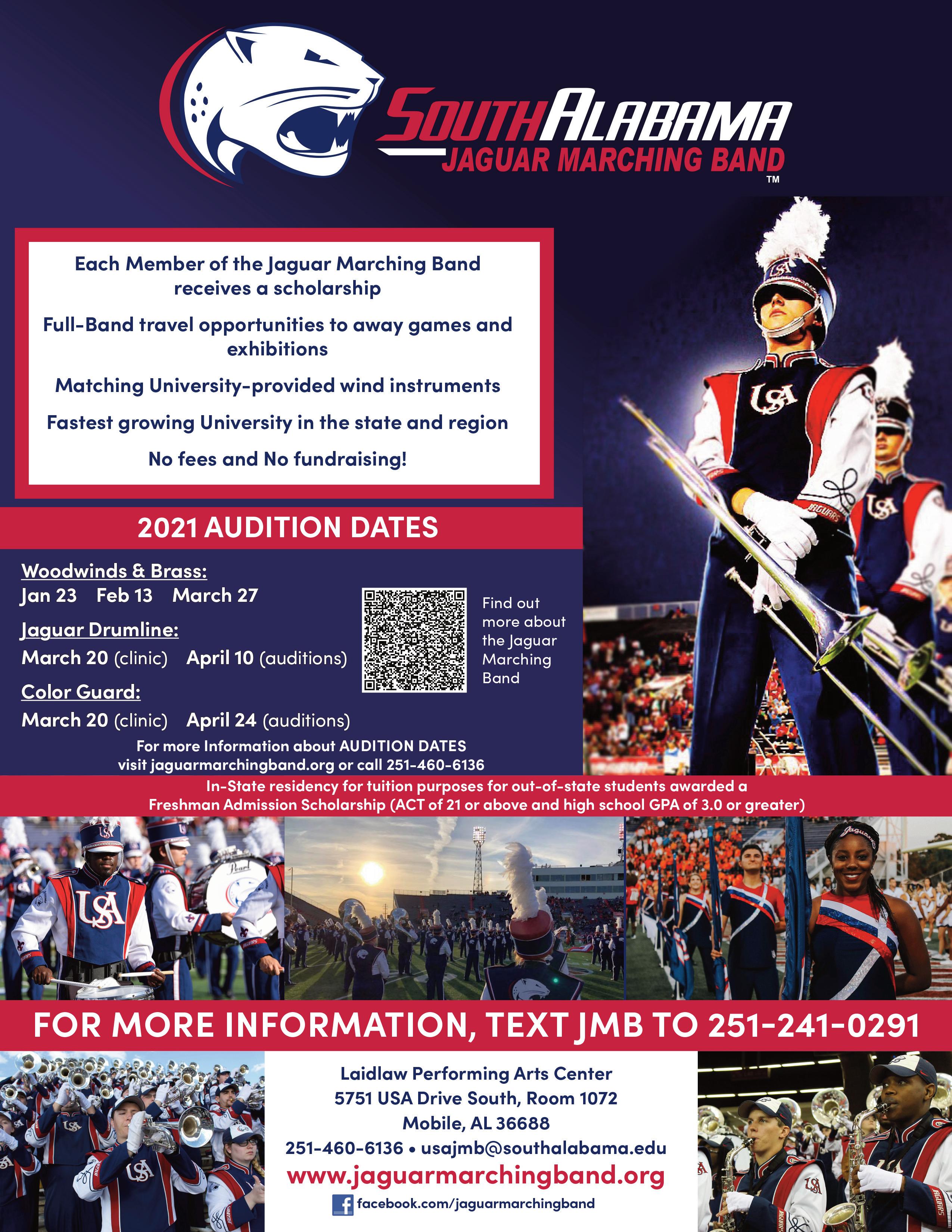
Collegiate Division Updates

The Collegiate Division has had a successful spring semester. The ALcNAfME board members, Emma Tosney (President), Mariah Martin (VicePresident), John Niiler (Treasurer), and Hannah Creel (Secretary), had the opportunity to participate in NAfME’s 2021 Hill Day. In this event, we advocated for music education with
several state legislators alongside AMEA Governing Board members Dr. Rob Lyda, Dr. Meghan Merciers (ALcNAfME State Advisor), Dr. Greg Gumina, Dr. Becky Halliday, and Mr. David Raney. The collegiate members offered a unique perspective on the importance of music education that proved effective in the meetings and
helped to bring to light some of the challenges that we have faced in the classroom due to the pandemic.
The executive board began planning the 2021 Alabama Collegiate Summit, which will take place on October 24 at the University of Alabama. We are excited to have the opportunity to meet in person at this event and expect to see many universities represented from across the state. Because of the effects of COVID-19, the theme for this year’s Summit is “Connect.” We hope to offer an opportunity for students to reconnect with one another and hear how connection is vital in the classroom. We are also planning on reaching out to initiative collegiate chapters throughout the summer to engage less active chapters and increase numbers in membership.
The ALcNAfME newsletter is still underway and helping to streamline communication between the various chapters throughout the state. In the newsletter, we post updates for collegiates and have a collegiate chapter and student spotlight; it has been a successful way for the various chapters to stay connected throughout the busy semester.



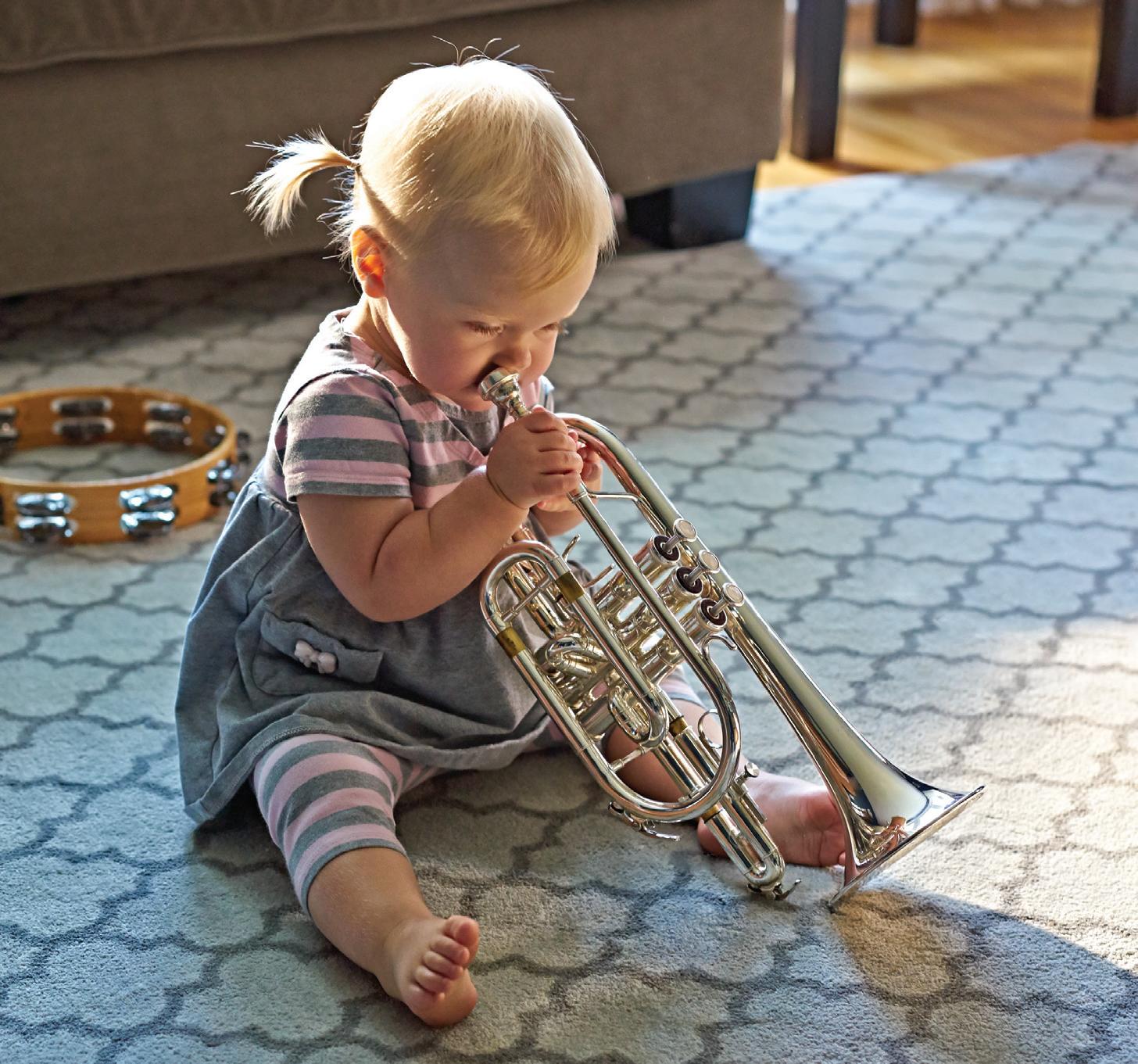
ala breve 23
Emma Tosney - President, cNAfME Alabama
Start a NAfME Collegiate chapter- Where music educators belong. Your students will: – Gain professional credibility – Get insight into the professional world – Expand their network of professional contacts – Open doors to job opportunities – Discover new teaching methods and techniques – Develop leadership skills Help your
Photo courtesy of American Youth Philharmonic Orchestras, Tie Xu, photographer For chapter materials, visit nafme.org/collegiate/getstarted or call 800-336-3768.
students become the music educators they were meant to be.
A Balancing Act: Overcoming Pandemic Reforms as a Pre-Service Educator
by De’Shun J. Everson
“Our deepest fear is not that we are inadequate; our deepest fear is that we are powerful beyond measure; it is our light, not our darkness that most frightens us.”
-Marianne Williamson
The spread of the COVID-19 pandemic continues to present insurmountable challenges and obstacles for numerous professions at large. We thank all essential workers for their diligent efforts, working dayin and out to find means of diminishing the spread of the virus. Understandably, no place on Earth yields 0% risk, but this does not mean that we should avoid taking 100% precaution at every forefront. While a wealth of the pandemic’s effects have ranged from moderate to dire, the scholastic barriers posed by it have fueled the fire for teachers across the nation not necessarily to ‘reinvent’ education but to ‘revamp’ it, ultimately making hybrid instruction accessible
for every student. Surely enough, we are compelled to accommodate instructional delivery methods and management styles to meet safety requirements. However, while we must embrace change to continue navigating life, a clichéd philosophy of modern education remains clear: we are not changing the ‘what,’ just the ‘how.’ It is this mindset that has allowed us to continue to push the envelope in our struggles, making the most of small victories and continuing to create relationships with students that are meaningful and empowering.
Amongst this adversity, the pre-service music educator is directly and objectively affected in their efforts to become classroom teachers. Safety constraints of the pandemic limit opportunities to participate in live observations of mentor teachers, diminishing the pre-service teacher’s ability to gain knowledge, skills, and
experience necessary to enter the field. As a result of this, the undergraduate music educator is confined to reporting on pre-recorded videos of master-teachers in their element to ‘check-off this box.’ While this option satisfies the requirements posed by teacher education programs at large, it devalues the relevance and authenticity that could be obtained by real-time instruction and mentorship. Consequently, one could argue that incoming young teachers are at a greater disadvantage than most, suffering from deficiencies of teaching skills caused by a lack of teaching time. However, while the pandemic has drawn individuals away from each other physically, our rapidly changing instructional technology has bridged the gap to keep us connected to our students, creating new skillsets to draw upon that will better serve the proficiencies that we do have.
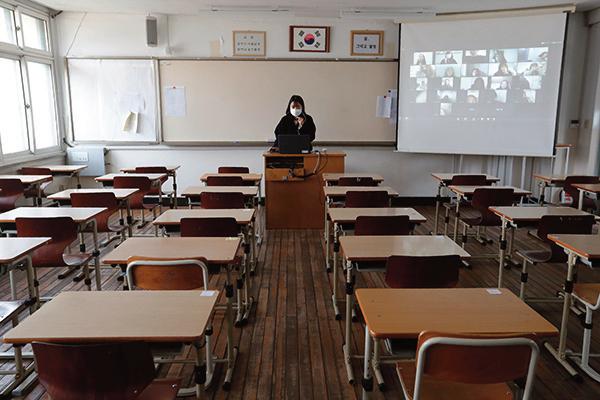
24 May/June 2021
In 1918, the influenza pandemic (modernly referred to as ‘the flu’) struck the world by surprise, leaving almost as many lost lives as the novel coronavirus. Similar to modern practice, public health officials worked countless hours with readily available technology and studied means of preventing the spread of the disease. Numerous institutions across the world closed their doors to keep constituents safe and alive. In 1916, the United States Bureau of Education proclaimed that “education is of high importance, but life and health safety are more important.” Contrary to the warnings, numerous suburban schools in the northeastern U.S. elected to remain open at every expense for the benefit of working parents. This would lead to the mass spreading of the disease to millions, leaving many deceased and more suffering for weeks on end.
Despite the challenges and desolate nature of our nation, learning could not cease. Educators were determined to ensure that students were provided with numerous resources to continue studies and scholastic growth. A coalition of educators (nationwide) challenged themselves to consistently deliver work packages to homes weekly, compromising their personal and family’s health while living and breathing the authentic connection shared between teachers and students. Consequently, while scholastic achievement became a priority, the social and emotional connections for all involved would see a drastic decline. While numerous schools reopened in immediate subsequent years, a wealth of students would not return to school buildings for two, maybe even three years after vaccines were available. While curriculum and pedagogy development have always been of high significance, no facet could, can, or will ever replace the need for building rapport with our social environment.
Years would pass before the effects on social development (for all involved) began to return to ‘normal.’
Over one hundred years later, another pandemic plagued the world, leading to another mass shutdown of schools. Similarly, a coalition of educators made substantial efforts to continue learning. Fortunately, technology has rapidly excelled, allowing us to see and connect with everyone through a screen! In March 2020, schools closed their doors to students and faculty, shifting to remote learning for the remainder of the school term. To this day, schools offer hybrid, flex, and virtual options to deliver instruction. While these methods allow us to continue developing and building a connection with students, shifting the status quo to enhance health safety has proven to be the most effective manner of providing quality education.
“The best way to learn how to do something is to do it.” Variations of this timeworn cliché have proven their worth in various scenarios. Learning how to manage a classroom while building relationships and delivering curriculum are learned skills. Due to the barriers provided by the pandemic, pre-service teachers that would normally observe in an in-person classroom in real-time have been restricted to ingenuine methods of developing these skills. Many are tasked with watching videos of master teachers and taking notes of teaching techniques. Innovative reforms have been made to allow student observers to teach hybrid lessons from a remote location, subjecting learners to management by mentor teachers. A normal face-to-face lesson requires lots of effort on the front-end to ensure that content is relayed and rapport is fostered. This becomes even more significant when delivering virtual lessons. Construction and

relaying of this instruction require incorporating various instructional technologies [that would not normally be used for in-person instruction], with probable technical difficulty. Nonetheless, to develop the effectiveness necessary to teach, we have met these challenges squarely in the face, moving toward maximizing instruction for all involved using every medium possible.
While several challenges stem from the hybrid method of instructional delivery, pre-service teachers [and their mentors] are determined to develop teaching strategies that will enhance their efforts as aspiring pedagogues. Considering the accessibility and perks offered by remote instruction, its use will be prevalent in modern education for years to come. The techniques acquired from the pandemic will allow us to continue a tradition of educational excellence while rebuilding the emotional connections with students that create trust and rapport.
Teachers will always find means of creativity and innovation at the expense of their students’ well-being. While this pandemic has challenged our perception of what is ‘normal,’ one philosophy of education remains ever constant: “Students don’t care how much you know until they know how much you care.” Fortunately, the barriers of the pandemic are also blessings in disguise. Because of our limits, [beginning] teachers will remain ever cognizant of the need to build a connection with every child, for every child deserves a champion. Be their champion.
ala breve 25
De’Shun Iverson is a Senior Music Education Major at Troy University.
Thank You!!
THANK YOU!!!!!! Thank you to everyone who helped to make All-State 2021 a success!! It took many hours of planning and implementation to make it happen, but the end result was five OUTSTANDING concerts from our students. Thank you for your patience as we navigated uncharted waters through this event to do everything possible to have a safe event for everyone. Thanks to the District 7 Band Directors and Meredyth Petersen who organized all the percussion needs for the bands. Thanks to our band hosts and percussion coordinators who went above and beyond to make sure the students were taken care of during the event. Thanks to the University of North Alabama Wind Symphony and Studio Lab Band and Dr. Lloyd Jones for a wonderful night of music on Friday night. And finally, Thanks to the ABA Executive team and Board of Directors for your leadership, hard work, and dedication to make this happen for our students. You are to be commended for going above and beyond the call of duty the past year to make sure that our organization met the challenges that were before us.
I write this as we are all looking at the end of a very difficult and trying year, and hopefully a year that we will NEVER repeat. But even with everything that has come our way, those in our profession have done what we always have done: we take a step back, look at the problem before us and we set a path forward for our program. Band has continued this year in many different ways, BUT IT HAS CONTINUED!!!!! Being flexible will always produce better results if we truly look for the ways that it can benefit our students.
The last 18 years of my career have been spent in service to my students and to ABA. I’ve served as Vice-Chair, Chairman, Recording Secretary, President-Elect, and now President, and will serve two more as Past President. It has been a joy of my life to serve ABA and the membership during this time. What we do is about service. First, we serve the program, school, and community in which we live and teach and pour out our passion for music into the lives of these students daily. But we must always keep in mind, it’s not about us, it’s about the students we serve, and the outcomes should ALWAYS be about them. Then, we need to actively serve in our state association to make sure that it is strong, that it has a unified voice that is heard on music education issues that affect our students. ABA is only as strong as YOU and I as the members make the organization. YOU must be involved, or it weakens both ABA and our parent group AMEA. I encourage you to make a new commitment in the coming year, to be active. Attend AMEA, All-State, MPA, District meetings and help to make YOUR organization be a voice that MUST be heard!!!


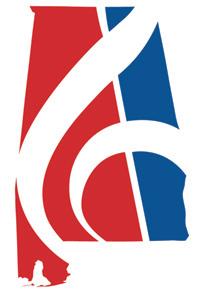
We are ABA and together we CAN do great things!!!!!!
(JUNE 15-17, 2021)

HAMPTON INN, ORANGE BEACH, ALABAMA
ALL-STATE BAND (APRIL 6-10, 2022) ARTHUR
R. OUTLAW MOBILE CONVENTION CENTER, MOBILE, AL
ALL-STATE BAND (APRIL 27-29 2023) VON
BRAUN CENTER-HUNTSVILLE, AL
ALL-STATE BAND (APRIL 25-27, 2024) VON
BRAUN CENTER-HUNTSVILLE, AL
26 May/June 2021
Terry Ownby- President, Alabama Bandmasters Association
DATES SUMMER
1
Terry UPCOMING ABA
CONFERENCE
2
3
4
Alabama Bandmasters Association
Outgoing ABA President Terry Ownby is presented the gavel plaque by
Incoming President Joel Henson
All-State Solo Festival Finalists
1st Place-Colby Batchelor, Sparkman HS
2nd Place-Zachary Howell, Fairhope HS
3rd Place-Evan Cargile, Hewitt Trussville HS
4th Place-Jackson Hanks, Hoover HS
5th Place-Wei Wei Guo, Hewitt Trussville HS
6th Place-Jackson Smith, Guntersville HS
7th Place-Tyler Winningham, Mortimer Jordan HS
8th Place-Ross Tolbert, Helena HS
9th Place-Jones Preg, Hewitt Trussville HS
First Chair Red Band
First Row: Piccolo-Jaxon Dunlevy, Vestavia Hills HS; Flute-Sara Reeves, Cullman HS; Oboe-Dominic Luthje, Daphne HS; Bassoon-Elias Loo, Sparkman HS; Eb Clarinet-Lauren Campbell, James Clemens High School; Bb Clarinet-Kaleb Williams, Lauderdale County HS; Alto Clarinet-Olivia Gray, Trinity Christian School; Bass Clarinet-Will Stallworth, Hoover HS; Contra Clarinet-Matthew Rocchio, Oak Mountain HS;


Second Row: Alto Saxophone-Michael Algarin, Montgomery Catholic Prep School; Tenor Saxophone-Charlie Decroes, Helena HS; Baritone SaxophoneSolomon Heinkel, Shoals Christian School; Trumpet-Ross Tolbert, Helena HS; French Horn-Anna Dunteman, Weaver HS; Trombone-Tannen Trees, Sparkman HS;Baritone-JP Aufdemorte, Spain Park HS; Tuba-Colby Batchelor, Sparkman HS; Percussion-Jackson Hanks, Hoover HS; String Bass-Noah Sugg, Fairhope HS;


First Chair Morantz Middle School Band
First Row: Flute-Jillee Jin, Monrovia MS; Oboe-Elyza Johnson, Berry MS; Bassoon-Lara Baez-Brogan, Spanish Fort MS; Bb Clarinet-Gloria Phillips, Pelham Park MS; Bass Clarinet-Ava Powell, Liberty MS; Alto Saxophone-Andy Sheng, Pizitz MS; Tenor Saxophone-Thomas Washer, Helena MS;
Second Row: Baritone Saxophone-Elijah Boyd, Bumpus MS; Trumpet- Braden Hensley, Jacksonville HS; French Horn-Madeline Cagle, North Jefferson MS; Trombone-Cade Dickerson, Weaver HS; Baritone-Kyla Jackson, Russell County MS; Tuba-Michael Madera, Rehobeth HS; Percussion-Matthew Diffey, Oak Mountain MS
First Chair Warren Middle School Band
First Row: Flute-Wardah Naim, Pizitz MS; Oboe-Ruby Reeves, Homewood MS; Bassoon-Daniel Troy, Auburn Junior High; Bb Clarinet-Cannon Spidle, Liberty MS; Bass Clarinet-Martin Lin, Auburn Junior High; Alto Saxophone-Christopher Best, Mountain Gap MS; Percussion-Corbin Williams, Smiths Station Freshman Center
Second Row: Tenor Saxphone-James Bagley, Lee-Scott Academy; Baritone Saxophone-Duke Rice, Auburn Junior High; Trumpet-Caleb Wilson, Liberty MS; French Horn-Nicholas Glennon, Auburn Junior High; Trombone-Brody Segers, D.A. Smith MS; Baritone-Jonah Jeck, Auburn Junior High; Tuba-Ethan Daniel, Priceville JH/HS;
ala breve 27
2021 ABA All-State
Tips That Click
This month, Tips That Click shares the valuable insights of a veteran teacher. John Hillsman has taught for almost 4 decades and is a member of Rho Chapter-Phi Beta Mu International Bandmaster Fraternity. His information should help all of us as we attend any type of conference or professional development activity. This article first appeared as a guest blog post on excelciamusic.com

Avoiding The Midwest Clinic Blues
I want to share these thoughts with band director friends, especially my younger band director friends. I formulated these ten statements over the years. Occasionally, I slightly revise one statement. I keep them handy in my notes on my phone/iPad and refer to them as necessary.
I well remember being a young band director attending The Midwest Clinic. Two things always happened as a result of attending the event: 1. I would come home feeling motivated and empowered to teach. The experience was invigorating. 2. I realized, and annually I was reminded, of the extent to which I was (and continue to be) a virtual “nobody” in the profession. I would also come home almost depressed about myself professionally. I was depressed to the point I actually did not attend the clinic for years because the invigoration was not worth the depression and lack of self-worth I felt professionally. The Midwest Clinic is built around the “somebodies.” The entire time you are there if you are like me, you realize you stand in an outer circle looking into the inner circle. I finally realized that it is perfectly alright to be in that outer circle. Most of us are. Fortunately, in our profession, most in that inner circle are gracious to those of us who are not!
I continue to go to The Midwest Clinic annually and totally enjoy myself and the experience. I still come home invigorated to teach but never depressed about myself any longer. However, to do so, it took me coming to the ten realizations I share below.
Have a hobby or do something you enjoy outside of band 1 directing/music if you want to last in this business until retirement (and in my case, beyond it).
Most of us will not have the “premier” band programs. You will 2 discover that it is as much about landing the “right” job as anything else. You can be a stellar and wonderful teacher, but premier programs are the result of great teaching and the “stars have aligned” resources all falling into place.
Align your program goals with the resources at your disposal and 3 make it the best you can for your students. Trying to develop the program beyond its resources breeds frustration for all involved and especially for you as the director. It is as important as teaching to build your resources, but in most programs, there will be limitations on the resources available to you.
When you go to an event such as The Midwest Clinic, you may 4 realize how insignificant you are in the big picture, but you are the big picture to your students and your community. They don’t care about your status on a national level. They care about you on their level. You are highly important to them. Never forget your importance to them.
The biggest obstacles you will face in doing your job will be 5 thrown in front of you by the very people who hired you to do your job.
The conditions that you agreed to when accepting your position 6 (scheduling, funding, job conditions, resources, etc.) are only good as long as that person or group who hired you is your supervisor(s). In many instances and especially in non-union states, these agreements are made on a handshake. When that supervisor moves on, often so do the conditions you agreed to. Be alert to recognize when you are not the band director that a
by John Hillsman
new administrator wants. Seldom do they have the integrity to just be forthcoming and tell you. They chip away at your resources and continually drop hints while smiling at you to your face. If you don’t take the hint, they can and often do something that can potentially damage your career. (I have seen this situation happen to good band directors often throughout my career.)
Life in our chosen profession can change on a dime. The 7 conditions that favored and fostered your success can be chipped away at or outright stripped away. You cannot, in many instances, continue to build or even maintain your program when your resources have been diminished. It is like investing $100K and then withdrawing $40K, but still expecting to get the same return on your investment. It doesn’t work that way though many administrators will allow your resources to diminish and expect you to continue to build or maintain the current levels of program success. This situation is often a harsh reality that we often face at times in our careers.
Realize that resources in your band program are more than just 8 monetary. They include things such as the socioeconomics of your community and specifically your students and parents, the intellectual levels of students and parents, the value of your band program to your school and community, your ability to obtain funding for your program (are there resources within the community to support your program?), administrative support, etc. Realize that in most instances, administrative support is often the single most important resource. Plan accordingly. Align program goals to the resources at your disposal. Example: Don’t plan a band trip your students/parents cannot afford.
Due to factors beyond your control, sometimes it is important to
9 know when to move to greener pastures. However, make sure that the pastures you move along to are actually greener. There are more factors involved in doing your job that you cannot control than you can control. (Refer to some of the points above for an explanation.)
LET YOUR FAMILY COME FIRST. This is probably the single
10 biggest mistake many band directors make. Don’t let your job consume you. Know that being happy at home and work are both important to your well-being. Often I have been happy at work, but not at home (generally my fault in hindsight). At times, I have been happy at home but not at work, often due to those factors beyond the scope of my control. However, true happiness and fulfillment come when you are happy at home and work. If one has to be slighted, let it be work, not home.
John Hillsman is a native of Tifton, Georgia. Upon graduation from Tift County High School, he attended Troy State University. He currently holds a Bachelors’s, Masters and Specialist Degrees in Music Education from Troy University. Before accepting his current position as band director at Beauregard High School and Sanford Middle School in Opelika, Alabama, Mr. Hillsman was the band director at Hawkinsville High School/Pulaski Middle School, Westover High School, Washington County High School, and he retired from Jeff Davis High School in the state of Georgia. This year marks his thirty-seventh as a music educator.

28 May/June 2021
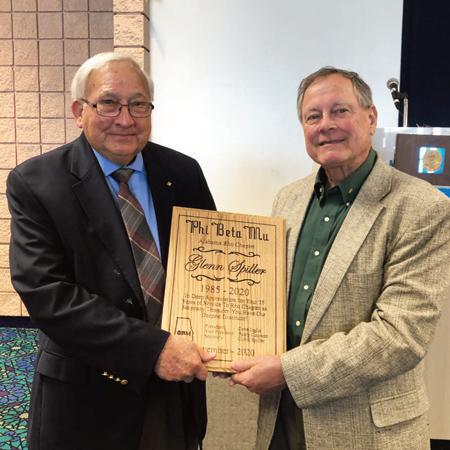



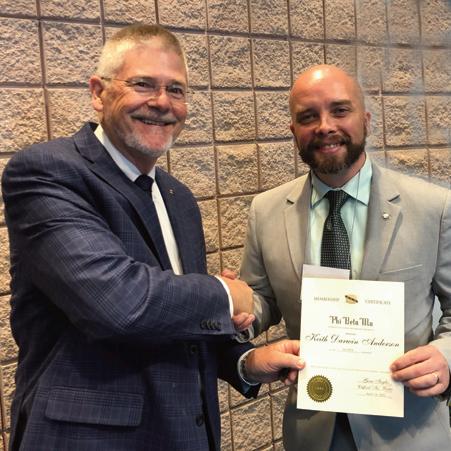
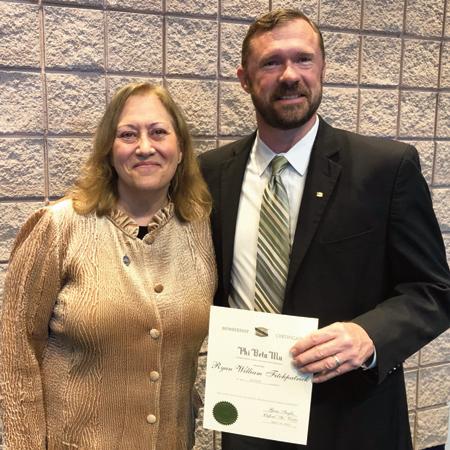
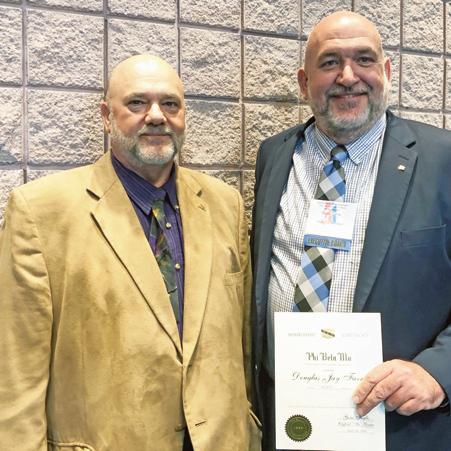



 Glenn Spiller receives a plaque recognizing his 35 years of service to Phi Beta Mu as Secretary/ Treasurer from new Secretary/Treasurer Ski Winter.
Justin White (Center) recognized as the Phi Beta Mu Outstanding Young Band Direector by PBM President Gene Inglis and Sec/Treas. Ski Winter John Cooper (Right) is recognized as the Phi Beta Mu Outstanding Band Director by Tommy Brannan
Suzi Winter (Right) is inducted into the Phi Beta Mu Hall of Fame. Looking on is Secretary/Treasurer Ski Winter
Robert W. Smith (Center) is inducted into Phi Beta Mu as an Honorary Member. He is flanked by Jim Knight and PBM President Gene Inglis
James Crumb (Right) Carlton Wright, Sponsor
Keith Anderson (Right) Pat Stegall, sponsor
Doug Farris (Right) Mike Holmes, sponsor
Ryan Fitchpatrick (Right) Sallie White, sponsor
Nancy Frith (Right) is Dr. Lloyd Jones, sponsor
Lori Hart (Right) John Hillsman, sponsor
Glenn Spiller receives a plaque recognizing his 35 years of service to Phi Beta Mu as Secretary/ Treasurer from new Secretary/Treasurer Ski Winter.
Justin White (Center) recognized as the Phi Beta Mu Outstanding Young Band Direector by PBM President Gene Inglis and Sec/Treas. Ski Winter John Cooper (Right) is recognized as the Phi Beta Mu Outstanding Band Director by Tommy Brannan
Suzi Winter (Right) is inducted into the Phi Beta Mu Hall of Fame. Looking on is Secretary/Treasurer Ski Winter
Robert W. Smith (Center) is inducted into Phi Beta Mu as an Honorary Member. He is flanked by Jim Knight and PBM President Gene Inglis
James Crumb (Right) Carlton Wright, Sponsor
Keith Anderson (Right) Pat Stegall, sponsor
Doug Farris (Right) Mike Holmes, sponsor
Ryan Fitchpatrick (Right) Sallie White, sponsor
Nancy Frith (Right) is Dr. Lloyd Jones, sponsor
Lori Hart (Right) John Hillsman, sponsor
ala breve 29
Phi Beta Mu Rho Chapter New Members
Teaching with Technology: Practical Tips for First Year Teachers
by Francisco Gonzalez
This school year has brought 21st century educational technology to the forefront in a way that it is here to stay. Virtual teaching may or may not persist in some form next year, but it would be best not to retreat from the technological advances we have made. This coming Fall can mean greater technology integration even during inperson instruction. Various blended learning models can serve to redesign classrooms so that technology plays a vital part in delivering instruction or monitoring students. With a year of virtual teaching behind us already, here are some tips from the trenches for new teachers to consider when teaching music live (synchronously) or offline
(asynchronously) in whatever technology-assisted scenarios you may encounter.
Trust your experience with 1 online learning as a student. Many teachers moving to virtual teaching this year had little to no experience with online learning. Your college student experience with
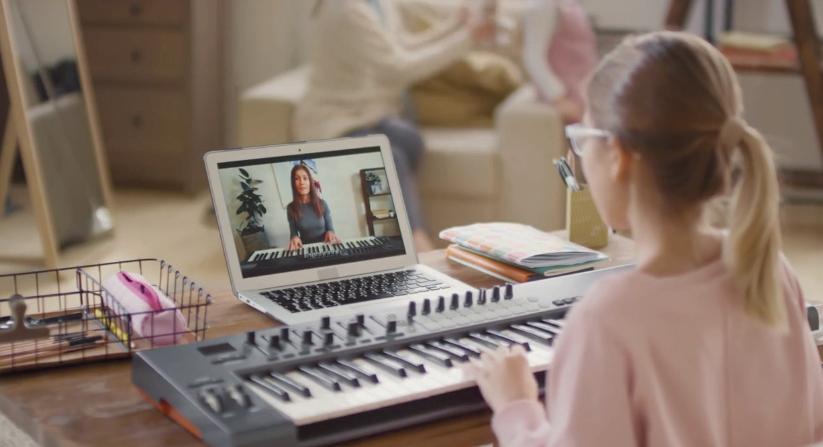
Learning Management Systems or other forms of online learning gives you an advantage. Have confidence that you already intuitively know a lot about designing
an engaging online learning exp erience. Trust your gut, you got this! You probably have more than enough tech tools at this point at your disposal, but the following practical tips will help things run smoothly.
Online teaching requires 2 much more time. Ensuring student compliance and online participation requires much follow-up. Allow time within the lesson for reliable students to work independently while checking in on students who tend to fall off the radar. Plan extension exercises for advanced students who can
30 May/June 2021
complete work offline or in collaboration with others in some way during class (virtual breakout rooms, etc.). This allows more time in class to focus on students needing greater support. Regular routines such as online attendance procedures, routine assignments, or peer feedback procedures not only save time but can build a predictable environment that some students need for comfort and success.
Feedback, Feedback, 3
Feedback- An in-person music class will have many cycles of student/ensemble performance and teacher feedback. The online class may not lend itself to the same frequency of feedback but it does offer some unique feedback opportunities using technology. The expected recordings of student performance in an online class offer material for students to view and critique their peers as homework. Recordings can also be used as examples during inclass discussions. Teachers can provide offline feedback at home for student recordings to offer a more personalized approach than class time often permits. These recordings can later be collected to create portfolios to document student progress.
miss class due to technical issues during the school day. Include Sound Engineering 5 technologies- The bulk of my virtual music instruction this year has involved sound engineering for my general and even performance classes. This has allowed exploration of music creation at home in a non-traditional format using various student devices. With so many application options, now is the time to extend lessons into 21st-century music production. Elementary or General music classes can benefit from basic MIDI technology such as “Songmaker” Chrome Music Lab (https://musiclab.chrome experiments.com/Experiments). For secondary students, Garageband is a common application found on student devices such as iPhones and iPads. Students without access to music applications on their computer can use online Digital Audio Workstations (DAW) such as BandLab.com and SoundTrap.com to record music, create music using MIDI or explore even more popular loop-based music creation options.
Revolution, LANDR, and Garageband Guide are teacher and student-friendly and can be readily embedded within an online lesson as a resource.
May these few tips enhance what probably has been some of the most unique student-teacher experiences ever. We are well into the 21st century and are looking forward to the strides our new teachers may make as music education continues its reinvention. Best of luck to new music teachers this Fall.
Schedule regular office hours
4 after school- These regular hours provide time to give feedback on assignments, enter grades, and contact parents. Consistent follow-up in all these areas is essential for successful virtual or blended instruction. Students who need additional assistance could also benefit from teacher office hours after school especially when they
Embracing lifelong learning- 6 Education is advancing rapidly changing so be prepared to keep learning and growing every day. As a classically trained oboist, I would have never imagined myself teaching sound engineering one day. Informal education is the key to staying contemporary. So, remember if you don’t know what you are doing there is always a YouTube tutorial somewhere until formal training appears. YouTube channels for Recording
Francisco Gonzalez is a Sound Engineering teacher at McNicol Middle School in Hollywood, Florida. He has also taught at Lyons Creek Middle School in Coconut Creek and Celebration School in the heart of Disney’s planned community near Orlando. He served as a state officer in the Alabama CMENC/ NAfME Collegiate division from 1995-1998. He graduated from the University of Alabama with a Bachelor of Science in Music Education and received a National Board Certification in Music/EAYA 2008-2028. In December 2020, he was recognized by the National Board of Professional Teaching Standard with a National Spotlight Award recognizing his commitment to diversity, technology integration and for leading his fellow teachers as a technology coach during the transition to virtual instruction during the pandemic. He can be reached at francisco.gonzalez@browardschools.com or @iFriargonzo on Twitter.
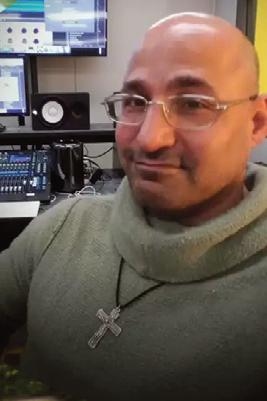
ala breve 31
Self-Reflection Progression
by Dr. Matt Leder
collaborate in a broader sense.
We have been still and the time to reflect is now. If we are to truly serve our students and the music, we should deal with ourselves and reach out to others. Consider the people, the traditions, and opportunities that could arise from such collaboration. Everyone has strengths and weaknesses, but we are all stronger together. To truly swing,
As music educators, we are constantly adapting to create opportunities for our students and to push the music forward. Who would have imagined the challenges we have faced over the past year? Virtual quarantine forced many of us to rethink our approach to music education. Concerts, recruitment tours, projects, personal growth, etc. were all put on hold. We’ve all been discouraged at some point or another due to the uncertainty of the future. The present is filled with anxiety.
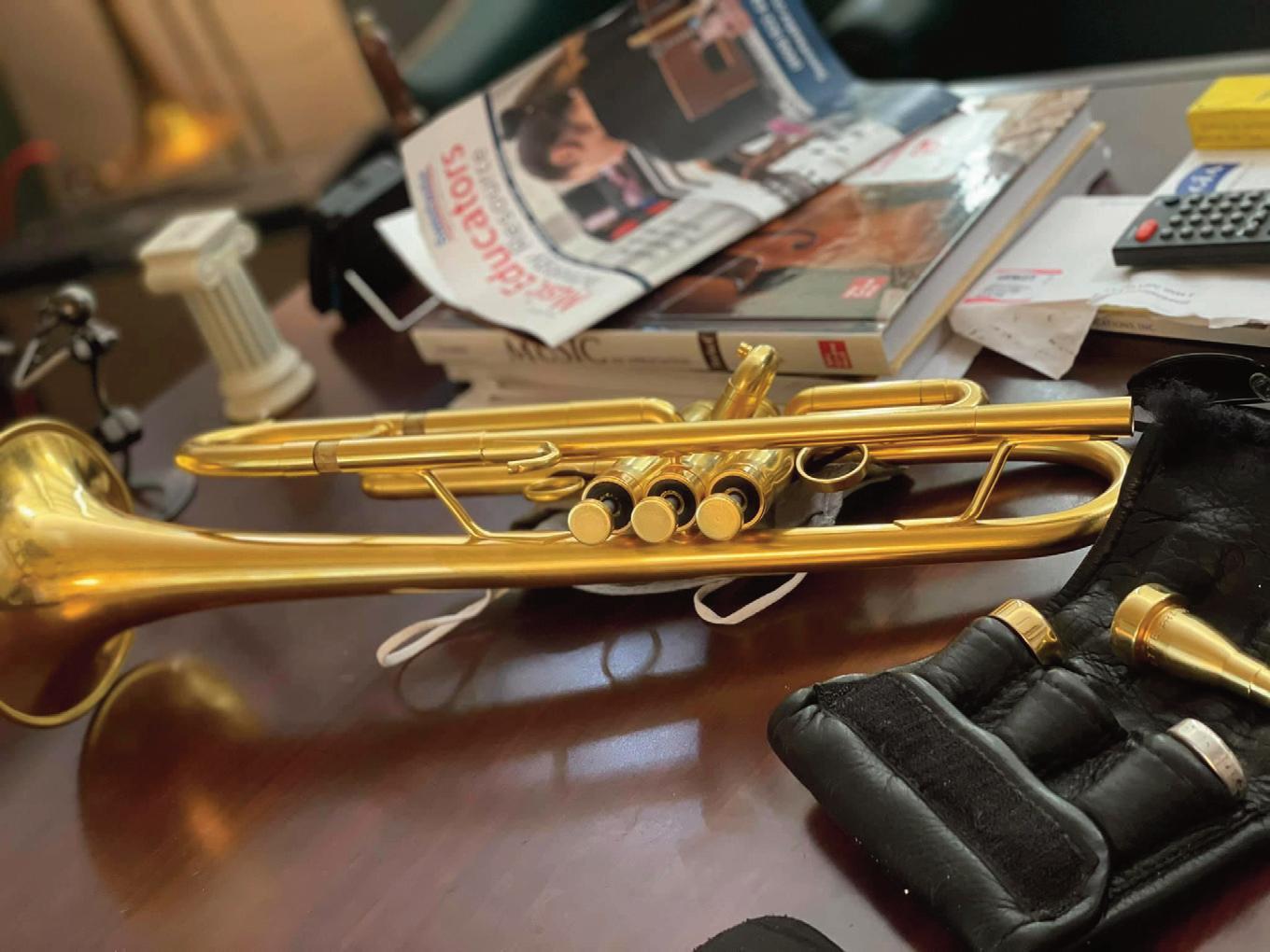
However, this moment in history is a real opportunity. It is an opportunity to reevaluate ourselves and plan for the future. During this time of isolation, we were all forced to be still. Sean Jones, the current JEN President, stated, “We were forced to be in the moment and literally reflect on what has worked, what doesn’t work in our current predicament, and how to move ahead in a new reality that is constantly evolving. That is why I feel that we must reflect, assess and project, as we are all in a state of stillness”.
In the current state of affairs, we can look back at our past and reflect on our future. We should look back at our careers, reflect on what we have done well and evaluate where we could improve. Perhaps there are some projects we have always wanted to do, perhaps there are things we “wished” we had tried, etc. It is difficult to look into the mirror at our own faults. We can accept the truth or continue to maintain a continued repetition of day-
to-day tasks, thus hindering opportunities for personal growth. There are many times these past months that I have looked back at myself to re-evaluate myself as an educator, a musician, and a human being. I try my best not to run from myself, but rather to deal with myself.
During these times of quarantine, we have been isolated from our colleagues. Sure, some of us may have reached out briefly to a colleague for advice on how to function in this current environment or maybe we reached out to someone to figure out how to put together one of those great group quarantine videos. Before COVID-19, many of us did our own thing, in our own way, and rarely reached out to others to collaborate. There are exceptions to this, but many times we get wrapped up in our own responsibilities and don’t reach out to
there is no room for ego-tripping. It takes a careful purposeful collaboration. Consider that not only on the bandstand but in the classroom.
Consider “why” you got into this field in the first place. Reflect on what the first sounds or musicians that inspired you or the joy you found when you conquered a technical challenge. Take a step back to move two steps forward. Dream, plan, and implement your professional and personal goals. Turn vision into reality. Have the courage to make a change for the better. Several in our state are working on some new projects of collaboration and I can’t wait to announce some of these opportunities. Stay tuned, keep the faith, stay humble, and keep swingin’!
In the spirit of swing, Dr.
Matt Leder
32 May/June 2021
2021 BELMONT SUMMER MUSIC CAMPS
PIANO PREPARATORY CAMP
June 7–11 | Ages 6–12
Attend Classes in Performance, Music Theory and Group Instruction
Attend Recitals, Concerts and Masterclasses
PIANO INVITATIONAL
June 6–11 | Grades 9–12
Study Classical or Jazz Piano
Classes in Music Theory, Sight-Reading, Technique and Improvisation
Faculty Recitals and Student Performances
For more information, cost and registration, visit: BELMONT.EDU/MUSIC

SUMMER WINDS BAND CAMP
June 13–19 | Grades 9–12
For Woodwinds, Brass and Percussion
Study Classical and Jazz Styles
Ensemble Opportunities Include Wind Ensemble, Jazz Ensemble and Chamber Music
GUITAR CAMP
July 19–23 | Grades 9–12
Group Lessons and Masterclasses
Ensemble and Classroom Activities in Improvisation, Music Theory and Technique
Faculty and Student Concerts
STRING CROSSINGS CAMP
June 20–25 | Grades 9–12
For Violin, Viola, Cello and Double Bass
Study Multiple Styles Including Classical, Swing, Celtic, Rock, Jazz and Bluegrass
String Orchestra and Small Group Opportunities Available
VOCAL ARTS INTENSIVE
June 27–July 3 | Grades 9–12
Solo, Ensemble and Choral Singing
Masterclasses in Classical, Jazz, Musical Theater and Contemporary Styles
Elective Classes in Conducting, Music Technology, Audition Tips, Scat Singing and More
ala breve 33
The Art of the Ask

Meeting with law makers and their aides can be an exciting experience. Sitting in offices with ornate marble fireplaces and wood paneling for miles can allow a myriad of overwhelming thoughts. The first time I went to DC to advocate, I must admit, I had songs from Schoolhouse Rock playing on a loop in my internal soundtrack. I even wanted to take my picture sitting on the steps of the US Capitol à la “I’m Just A Bill”. The excitement of advocacy can almost make one forget the fundamental purpose of advocacy work - “the ask”.
The ask is the culminating point of an advocacy meeting. In the span of less than 30 minutes, there are introductions, making connections, telling your story, and then comes the ask. The ask varies from simple statements of support to more complex legislation discussions. Some asks will be well received, and some asks will be dead on arrival. No matter what the response is to the ask, an advocate can and should not give up.
The ongoing pandemic has changed so much about our lives, profession, and even how we do advocacy. Each summer a group of AMEA leaders travel to Washington, DC to advocate during NAfME’s Hill Day. Due to travel restrictions and limited access to lawmakers, NAfME did not have Hill Day in 2020. Instead of canceling the event in 2021, NAfME made the decision to host Hill Month to coincide with Music in Our Schools Month® in March. AMEA joined
with other MEAs across the country to hold virtual advocacy meetings via ZOOM.
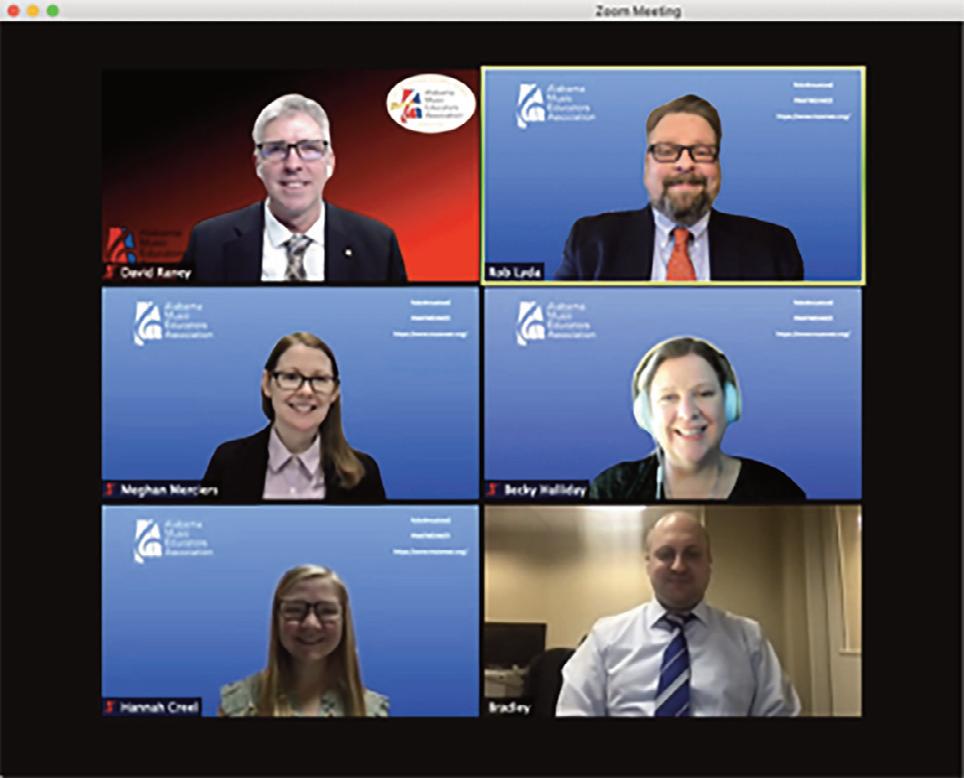
Alabama’s MEA was well represented and met with staff from the offices of Sen. Shelby, Sen. Tuberville, Rep. Carl, Rep. Moore, Rep. Palmer, and Rep. Rogers. We made the decision that our delegation would work to build relationships and let the ask come later. We still thought the ask was important, however, we felt it was imperative to let our members of Congress know that there have been challenges due to COVID. More importantly, even with tremendous challenges, Alabama’s music teachers and students have persevered. We presented stories of resilience, facts about the arts and music education, and with the hope that we could build relationships with our law makers.
As I mentioned earlier, we decided to forgo the ask during our meetings. In all honesty, the ask was still there; we just didn’t have the climatic moment. Instead, we discussed how economically important the Arts are to the state of Alabama. Did you know that the arts contribute 4.6 billion dollars annually? We discussed how increasing funding to Title programs could help expand music programs in underrepresented
areas of Alabama and fund professional development for teachers. Better professional development and mentoring programs could potentially keep more new teachers in the profession. We discussed how music programs are essential to the well-being of our students, and their communities, and we provided examples of how music has helped during the pandemic. The ask was there, we just presented it differently.
I’m happy to report that our approach worked. In fact, one of our Representatives, that usually doesn’t meet with our MEA during Hill Day, contacted us and NAfME for more information on an education issue. NAfME was so pleased with Alabama’s work that they featured our MEA in the closing Hill
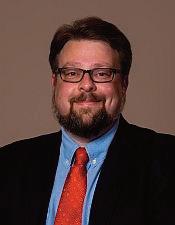
Rob Lyda, AMEA President-Elect
Dr.
34 May/June 2021
Amea’s delegation (President David Raney, President-elect Rob Lyda, Collegiate Advisor Meghan Merciers, Becky Halliday, and cNAfME Secretary Hanna Creel) meet with Bradley Hays from Senator Tommy Tuberville’s office
Month celebration. Thank you to President David Raney, Past President Greg Gumina, Colligate Advisor Dr. Meghan Merciers, Dr. Becky Halliday, and Colligate members Hannah Creel, Mariah Martin, John Niiler, and Emma Tosney for sharing your stories and advocating on behalf of AMEA members and our students.
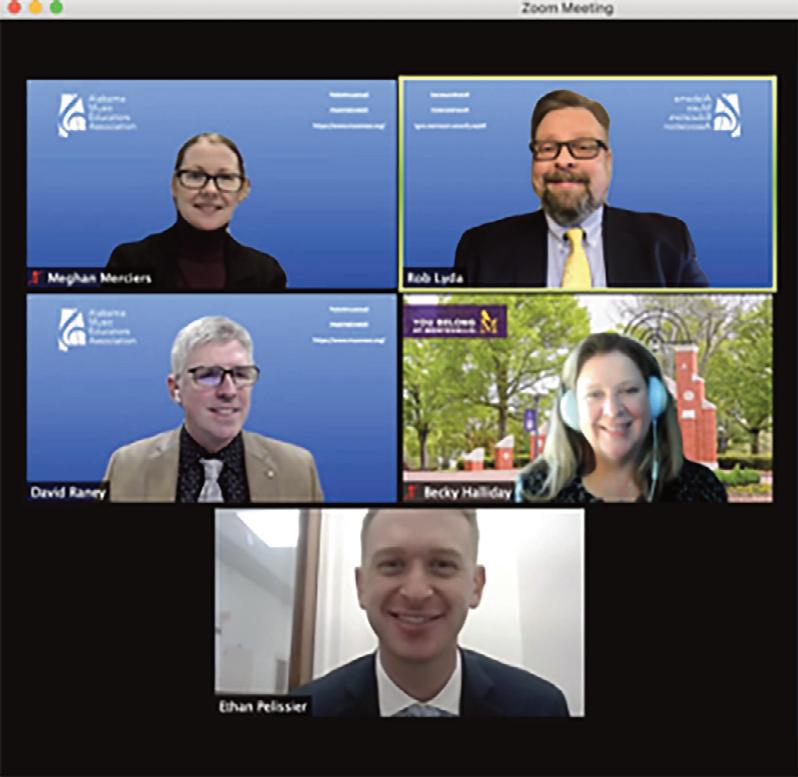
Although we enjoyed one success, we can’t rest on our laurels. The recently released ESSER funds as part of the COVID relief package could be vitally important to music education in our state. Alabama will receive $2,020,070,466 in additional funding. This additional funding is designated to be used for COVID recovery, to combat learning loss in all subjects, for sanitation and mitigation, and many other uses. You can ask for money for your programs and your students. In regard to these funds, I have heard two points, (1) we may never see this much funding allotted to education again in our lifetime and (2) these funds could propel and energize music education in ways we’ve only dreamed.
1946 Yale H . Ellis
.
If you want access to these funds, you must ask for access. School systems submit their “Roadmap to Recovery” document to the State Department of Education by June 1 – time is of the essence. Several weeks ago, AMEA sent an email to all members with a presentation by Andy Meadows about how ESSER funds could be used for arts programs. Please review and use to guide your work. Also, NAfME has been producing webinars, blog posts, and other resources to help. In addition, please reach out to AMEA leadership if you need to help. The ask is going to be important for access to these additional funds. I encourage you to make sure your asks are solution and student focused.
I’ve been asked a few times in the past week to give advice to beginning teachers, seasoned teachers, and tired teachers. Here is my best advice - never be afraid to ask. The worst thing that can happen is
that you are told no. Even if you are told no, keep asking. Providing students with a comprehensive music education is the reason to continue to ask, find new ways to ask, and never take a no as definite.
Keep working, keep advocating, and keep asking. Our kids are worth it.
AMEA Presidents - Past to Present
1972 Frances P. Moss
1974 George Hammett
1975 Frances P. Moss
1976 S J Allen
1978 W. Frank McArthur
1980 Paul Hall
1982 Lacey Powell , Jr .
1984 Johnny Jacobs
1986 Merilyn Jones
1996 Johnnie Vinson
1998 Michael Meeks
2000 John McAphee , Jr .
2002 Tony Pike
2004 Becky Rodgers
2006 John Baker
2008 Pat Stegall
2010 Steve McLendon
2012 Sara Womack
1964 G. Truman Welch
1966 Jerry Countryman
1968 Floyd C . McClure
1970 Jerry Bobo
1988 Ronald D. Hooten
1990 Ken Williams
1992 Dianne Johnson
1994 James K . Simpson
2014 Carl Hancock
2016 Susan Smith
2018 Greg Gumina
2020 David Raney
1948 Walter A
Mason 1950 Vernon Skoog 1952 John J Hoover 1954 Lamar Triplett 1956 Carleton K . Butler 1958 Mort Glosser 1960 Wilbur Hinton
1962 Lacey Powell , Jr .
ala breve 35
Amea’s delegation (Collegiate Advisor Meghan Merciers, President-elect Rob Lyda, President David Raney, and Becky Halliday) meet with Ethan Pelissier from Representative Rogers’ office
Craig Cagle, ABA Jazz Chair


All-State Jazz Band
The Alabama All State Jazz Bands held their clinic and concert on May 1 at Lakeside Baptist Church in Birmingham. Dr. David Phy, Dr. Tracy Heavner, Dr. Matt Leder, and Kelvin Benion were the clinicians.

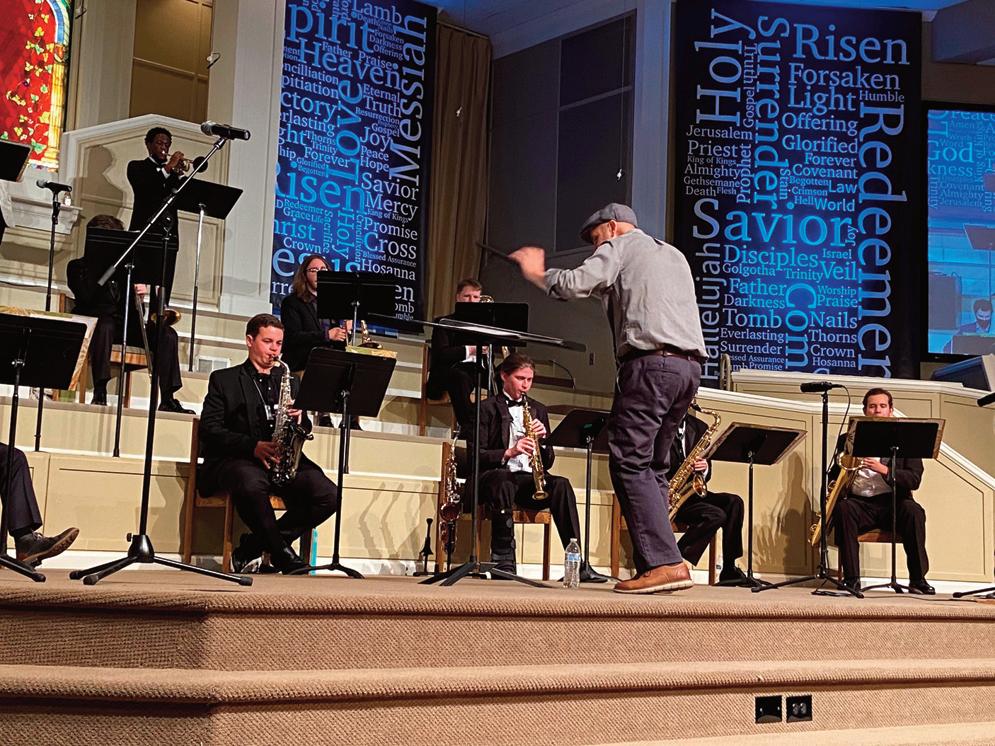

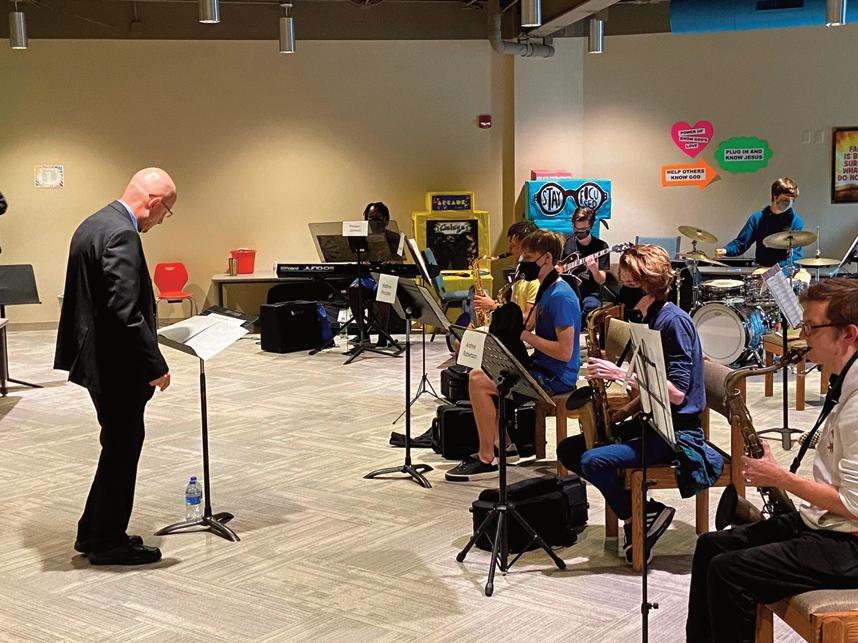
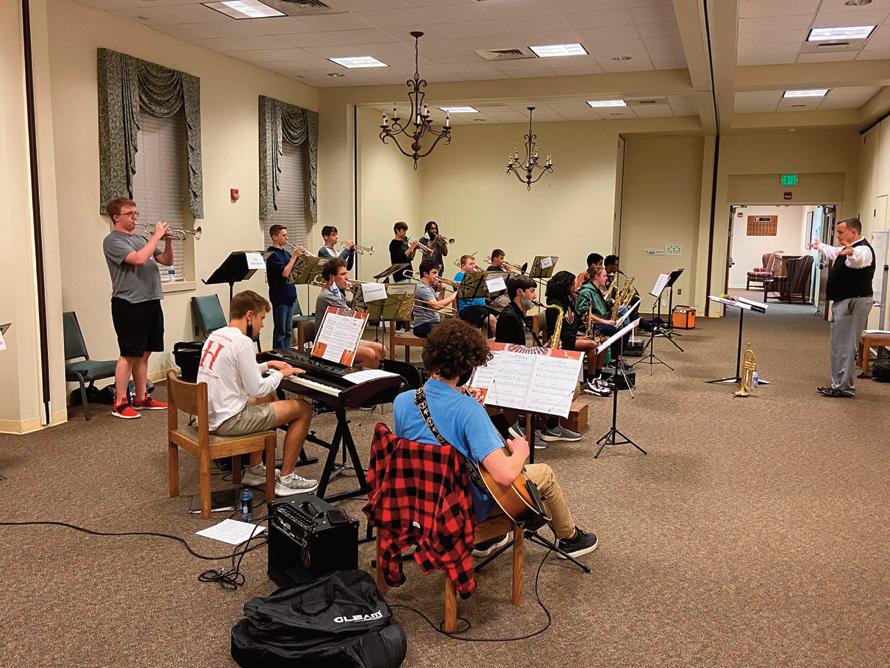
As outgoing Jazz Education Chair, I am grateful for the opportunity to work alongside the band directors across our state and many world class clinicians from across the country. Serving the students of Alabama for the past four years has been an honor and a privilege.

36 May/June 2021
General Music Reviews
By Deanna Bell,
Music Teacher at Vestavia Hills Elementary East, Adjunct Professor at the University of Alabama at Birmingham.

Hello,
We made it! Congratulations on completing the most challenging year of our lives! I am so proud of us! You guys continue to inspire me.
I have listed all of the Professional Development Opportunities from AMEA, SHAKE, and AOSA below. I would also like to challenge you to read something meaningful this summer. I will be reading “Culturally Responsive Teaching in Music Education. From Understanding to Application” by Lind, Vicki R. McKoy, Constance. You can purchase this book from West Music: Item No. 863582. If anyone would like to join me in discussing this book, please let me know!

Best wishes for an amazing summer!
Deanna Bell
2021 Samford Orff Levels I and III
June 21-July 2, 2021, In Person
Contact Dr. Morgan Soja:
2021 Montevallo Kodály Levels I, II, and III
July 12-23, 2021, Online
Contact Dr. Halliday
2021 Alabama AOSA Chapter Share
Saturday, July 31, 2021, 9-11, Online
2021 SHAKE ‘Back to School’
Kodály Workshop
Lea Jones Hoppe, Clinician
Saturday, August 14, 2021, In Person
Time and Location TBA
2021 East Alabama Workshop
Saturday, August 28, 2021, Auburn
2021 AMEA/AOSA/SHAKE Fall Workshop
Rhonda Tucker and Jeremy Howard
October 16, Montgomery, AL
2021 American Orff-Schulwerk Association

National Conference, North Charleston, SC
November 3-6, 2021
2022 AMEA Conference
Birmingham, Alabama
January 20-22, 2022
2022 Organization of American Kodály Educators National Conference
Pittsburg, PA
March 3-6, 2022
2022 Alabama Chapter of AOSA Spring Workshop
Jennifer Donovan, Clinician
March 12, 2022
2022 SHAKE Spring Workshop
Rachel Gibson, Clinician
April 2, 2022
ala breve 37
AVA Updates
The school year 2020-2021 will definitely be one we remember. I hope that someday we can all reflect on this year and realize how teaching in these adverse conditions has actually made us more innovative and creative problem solvers. I am amazed when I hear about the classroom activities music educators have devised and the originality that has allowed students to make music. I look forward to hearing more and celebrating your successes with you at an upcoming round table discussion.
Thank you to all the members of Alabama Vocal Association for your flexibility and grace as we all navigated together the uncharted territory known as teaching during a pandemic. We survived the virtual Fall Workshop, online All-State auditions, Solo and Ensemble, and SCPA; and were finally able to actually make music together at our abbreviated All-State festival.
Congratulations to all the district and state winners of the Pat Blackwell Music Education Award, Outstanding Accompanist, and Outstanding Choral

Student Awards. A highlight of our AllState festival was the presentation of the Frances P. Moss award to Dr. Carl Davis by Dr. Moss herself. Your AVA Board has spent countless hours listening, planning, and sometimes re-planning events that were meaningful and educational for your students. Hopefully 2021-2022 will look more like a typical year. At the upcoming summer board meeting we will unpack what we learned from this year so we can plan for the coming year. If you have items that you would like the board to consider, please reach out to your District Chair.
Fall Workshop will be Friday, September 10. Our guest clinician will be Dr. Jaclyn Normandie, our high school All-State SSAA clinician, choral music educator, yoga instructor, and lifecoach. We will also have reading sessions, round-table discussions, and will preview the All-State music.

AMEA professional development conference will be January 20-22 in Birmingham. The deadline to submit

session proposals and recordings for performances is June 1.

All-State will be March 10-12 in Birmingham. Auditions for All-State will be late October to early November.
I hope that you can take some time during summer break to take care of yourself; enjoy some downtime. This year has taken quite a toll on our students, but it has also been taxing for educators. If we have depleted our mental and creative resources, our students won’t get our best - the students deserve our best.
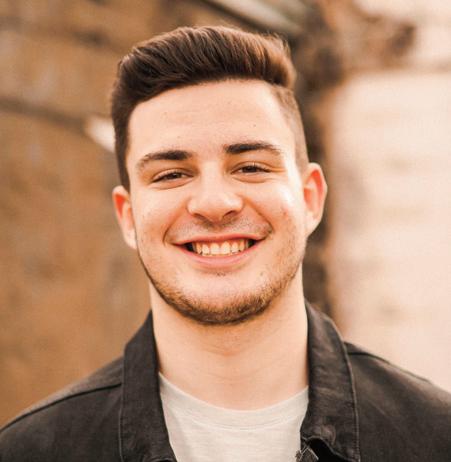
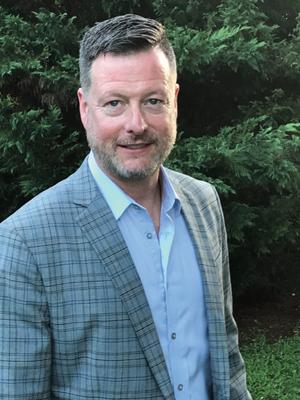
I look forward to hearing from you, and to seeing you at Fall Workshop. As always, if you can think of ways your board or I can better serve you, please reach out.
Enjoy your summer, Randall

Randall Fields - President, Alabama Vocal Association
District 1 Avery Guinn Russellville High School
District 2 Jordan Hall Hillcrest High School
District 3 Justin Howard Minor High School
District 6 Colt Bass Auburn High School State Winner
District 5 Reece Shepherd Bob Jones High School
38 May/June 2021
Outstanding Tenor-Bass Choral Students
Outstanding Accompanist

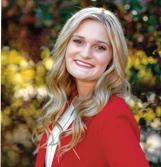
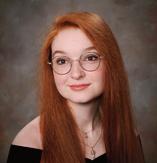
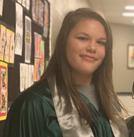


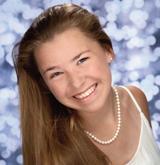




Outstanding
 District 5 Jonathan Lee Sparkman High School State Winner
District 4 Bethany Garmon Gadsden City High School State Winner
Pat Blackwell Music Education Award
District 1 Annika Halcomb Deshler High School
District 3 Abigail Allarde John Carroll High School
District 6 McKinley Newsome Auburn High School
District 5 Bailey Grace Flynn Hazel Green High School State Winner
Treble Choral Students
District 1 Adrian Parker Florence High School
District 2 Mary Carol Dassau Helena High School
District 3 Victoria Dahlgren Gardendale High School
District 4 Bethany Garmon Gadsden City High School
District 5 Jonathan Lee Sparkman High School State Winner
District 4 Bethany Garmon Gadsden City High School State Winner
Pat Blackwell Music Education Award
District 1 Annika Halcomb Deshler High School
District 3 Abigail Allarde John Carroll High School
District 6 McKinley Newsome Auburn High School
District 5 Bailey Grace Flynn Hazel Green High School State Winner
Treble Choral Students
District 1 Adrian Parker Florence High School
District 2 Mary Carol Dassau Helena High School
District 3 Victoria Dahlgren Gardendale High School
District 4 Bethany Garmon Gadsden City High School
ala breve 39
District 6 Ella Taylor St. James School District 7 Abigail Booker Saraland High School
AMEA would like to express appreciation to the following partners who have joined AMEA in our efforts to promote music education n Alabama. Please support these industry/institutional members who support you as music educators!
40 May/June 2021 Arts Music Shop, 3030 East Blvd., Montgomery, AL 36116 AWB Apparel, 206 Potomac Ct., Woodstock, GA 30188 JW Pepper, 9053 Riverside Pkwy, Lithia Springs, GA 30122 Kaleidoscope Adventures, 603 South Main Street, Winter Garden, Florida 34787 Madison Band Supply , 1604-B Hughes Road, Madison, AL 35758 Marchmaster Inc, P.O. Box 73379, Newnan, GA 30271 Troy University School of Music , 109 Long Hall, University Ave, Troy, AL 36082 Southern Performances, P.O. Box 6852, Gulf Shores, AL 36547 University of Alabama at Birmingham, 950 13th Street S., Birmingham, AL 35294 University of North Alabama, 1600 Tune Ave., Florence, AL 35630 University of South Alabama, LPAC 1072, 5751 USA Drive South, Mobile, AL 36688 AMEA Industry/Institutional Membership 2020-21



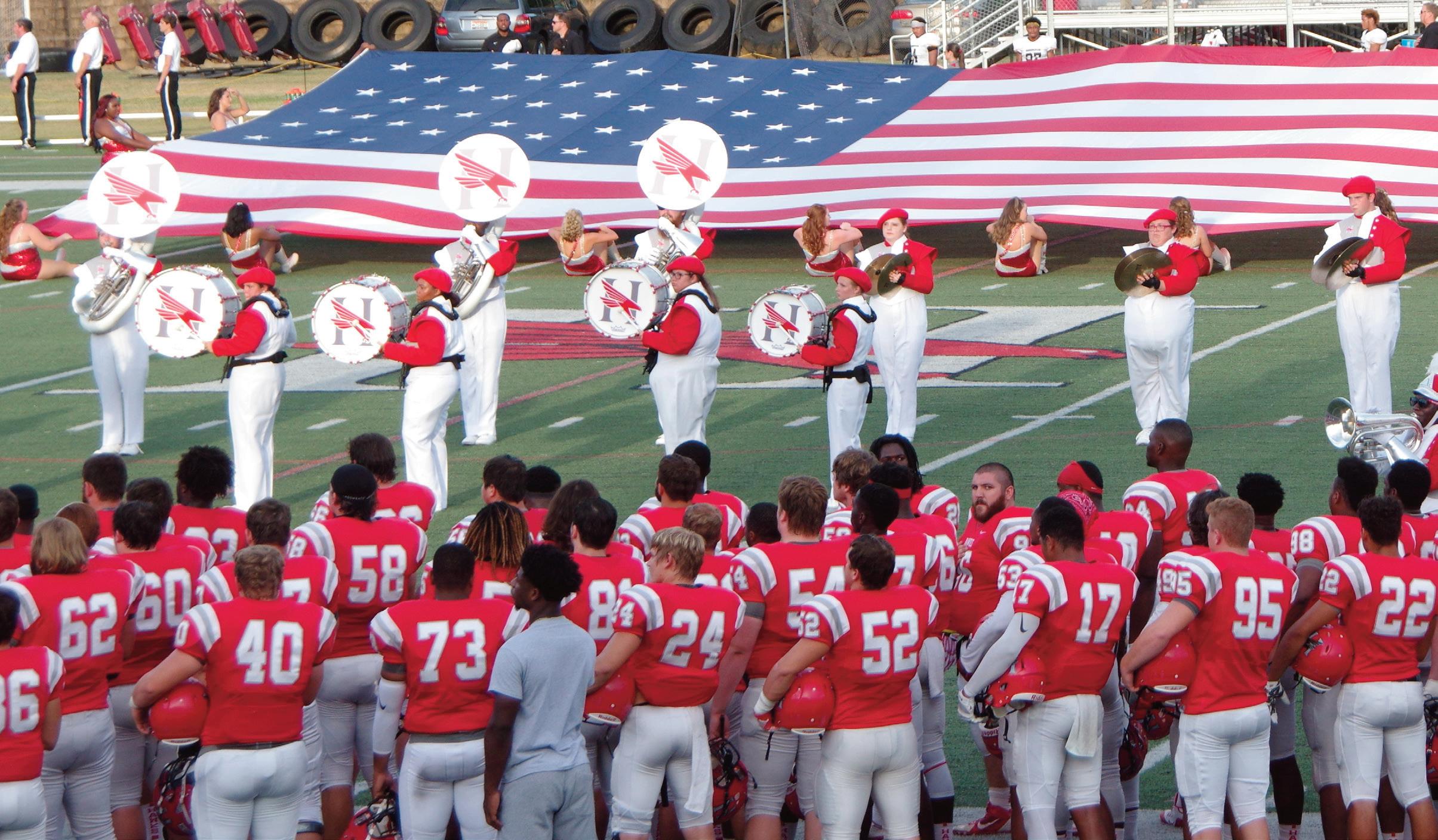




HUNTINGDON BANDS Huntingdon College Bands @huntingdonbands
BallHawks Pep Band
Huntingdon Winds & Jazz
Huntingdon College is committed to a policy against legally impermissible, arbitrary, or unreasonable discriminatory practices. Huntingdon College is accredited by the Southern Association of Colleges and Schools Commission on Colleges to award the Bachelor of Arts, Bachelor of Science, and the Associate of Arts. Contact the Commission on Colleges at 1866 Southern Lane, Decatur, Georgia 30033-4097 or call 404-679-4500 for questions about the accreditation of Huntingdon College. The Huntingdon College music program is accredited by the National Association of Schools of Music. Honor Bands: huntingdon.edu/bands Email: hcbands@hawks.huntingdon.edu
Marching Scarlet & Grey





























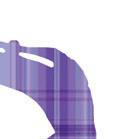











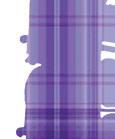
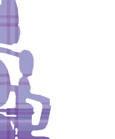

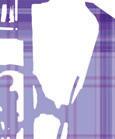






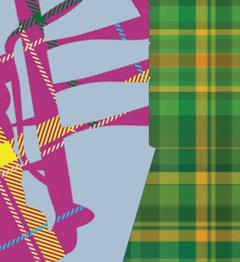











































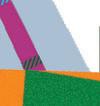





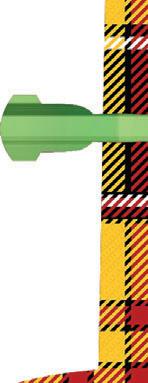


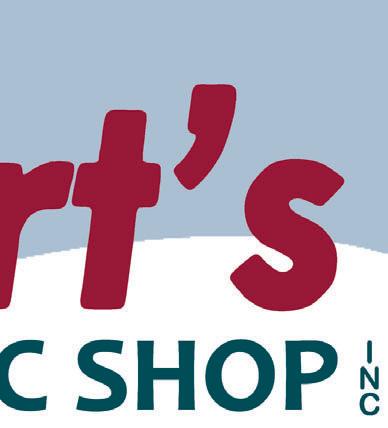













Serving the South’s Bands & Orchestras since 1905 Montgomery 3030 East Blvd 334.271.2787 Dothan 1861 W Main St #1 334.793.1284 4647-O Hwy 280S 205.995.8376 800-341-2787ArtsMusicShop.com B l vd 33 4. 2 71. 2 7 8 7 S t # 1 33 4.7 93.12 8 4 4 647-O Hw y 280S 2 05.995.83 76









































































































 Glenn Spiller receives a plaque recognizing his 35 years of service to Phi Beta Mu as Secretary/ Treasurer from new Secretary/Treasurer Ski Winter.
Justin White (Center) recognized as the Phi Beta Mu Outstanding Young Band Direector by PBM President Gene Inglis and Sec/Treas. Ski Winter John Cooper (Right) is recognized as the Phi Beta Mu Outstanding Band Director by Tommy Brannan
Suzi Winter (Right) is inducted into the Phi Beta Mu Hall of Fame. Looking on is Secretary/Treasurer Ski Winter
Robert W. Smith (Center) is inducted into Phi Beta Mu as an Honorary Member. He is flanked by Jim Knight and PBM President Gene Inglis
James Crumb (Right) Carlton Wright, Sponsor
Keith Anderson (Right) Pat Stegall, sponsor
Doug Farris (Right) Mike Holmes, sponsor
Ryan Fitchpatrick (Right) Sallie White, sponsor
Nancy Frith (Right) is Dr. Lloyd Jones, sponsor
Lori Hart (Right) John Hillsman, sponsor
Glenn Spiller receives a plaque recognizing his 35 years of service to Phi Beta Mu as Secretary/ Treasurer from new Secretary/Treasurer Ski Winter.
Justin White (Center) recognized as the Phi Beta Mu Outstanding Young Band Direector by PBM President Gene Inglis and Sec/Treas. Ski Winter John Cooper (Right) is recognized as the Phi Beta Mu Outstanding Band Director by Tommy Brannan
Suzi Winter (Right) is inducted into the Phi Beta Mu Hall of Fame. Looking on is Secretary/Treasurer Ski Winter
Robert W. Smith (Center) is inducted into Phi Beta Mu as an Honorary Member. He is flanked by Jim Knight and PBM President Gene Inglis
James Crumb (Right) Carlton Wright, Sponsor
Keith Anderson (Right) Pat Stegall, sponsor
Doug Farris (Right) Mike Holmes, sponsor
Ryan Fitchpatrick (Right) Sallie White, sponsor
Nancy Frith (Right) is Dr. Lloyd Jones, sponsor
Lori Hart (Right) John Hillsman, sponsor



































 District 5 Jonathan Lee Sparkman High School State Winner
District 4 Bethany Garmon Gadsden City High School State Winner
Pat Blackwell Music Education Award
District 1 Annika Halcomb Deshler High School
District 3 Abigail Allarde John Carroll High School
District 6 McKinley Newsome Auburn High School
District 5 Bailey Grace Flynn Hazel Green High School State Winner
Treble Choral Students
District 1 Adrian Parker Florence High School
District 2 Mary Carol Dassau Helena High School
District 3 Victoria Dahlgren Gardendale High School
District 4 Bethany Garmon Gadsden City High School
District 5 Jonathan Lee Sparkman High School State Winner
District 4 Bethany Garmon Gadsden City High School State Winner
Pat Blackwell Music Education Award
District 1 Annika Halcomb Deshler High School
District 3 Abigail Allarde John Carroll High School
District 6 McKinley Newsome Auburn High School
District 5 Bailey Grace Flynn Hazel Green High School State Winner
Treble Choral Students
District 1 Adrian Parker Florence High School
District 2 Mary Carol Dassau Helena High School
District 3 Victoria Dahlgren Gardendale High School
District 4 Bethany Garmon Gadsden City High School





































































































